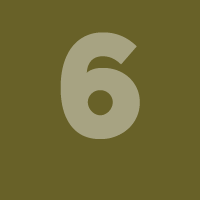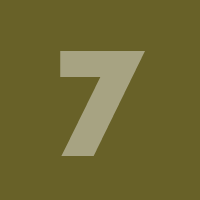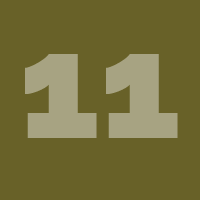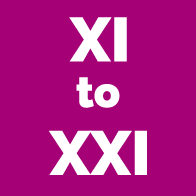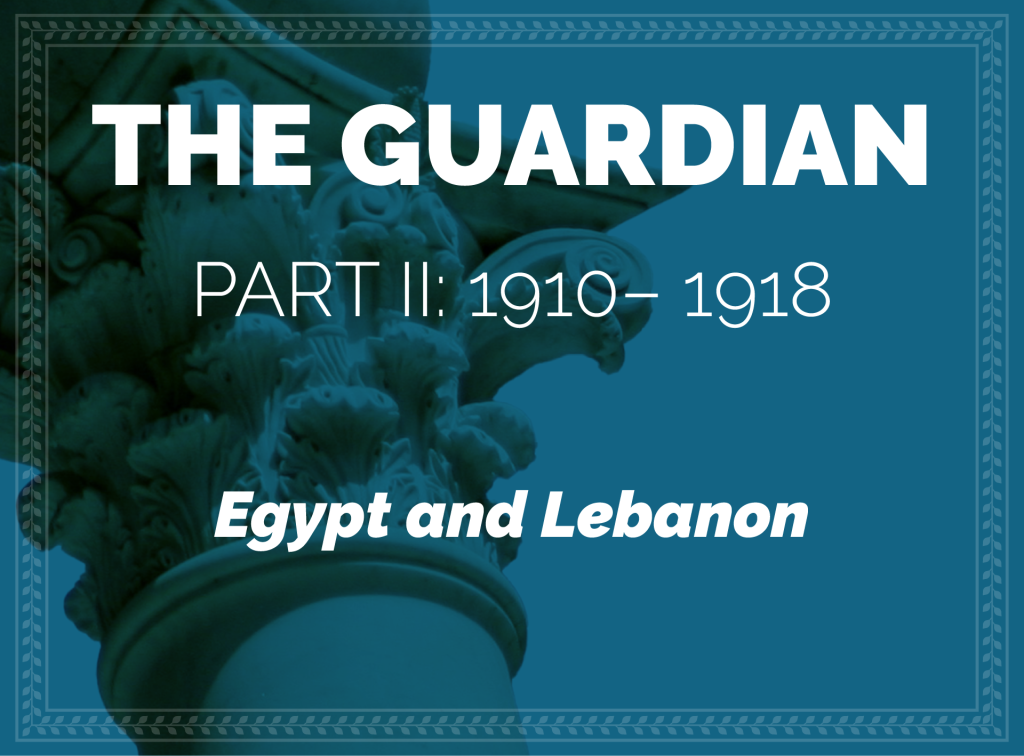
Written and illustrated by Violetta Zein
This part covers the life of Shoghi Effendi from the age of 13 in 1910 to the age of 21 in 1918.
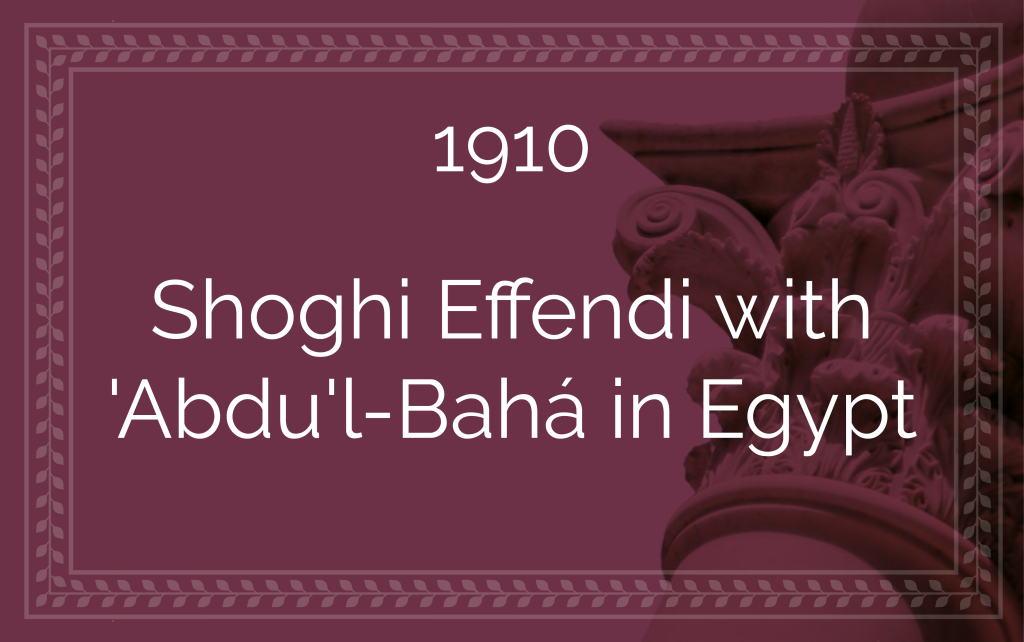
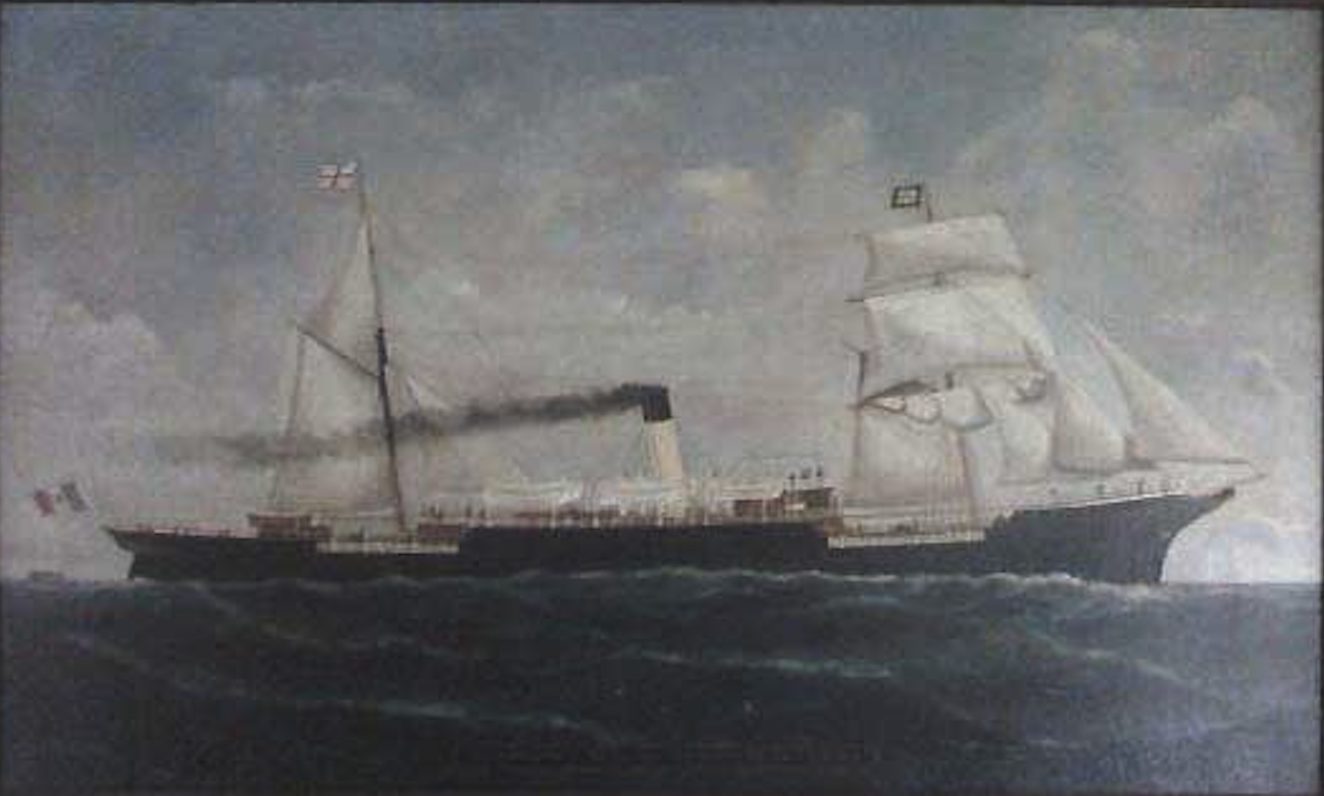
The Khedivial Mail Steamship Company's Kosseir, the ship on which 'Abdu'l-Bahá sailed to Egypt on 29 August 1910. Pictured here when she was the Mexican-owned Esteban de Antunano in 1884-1886.
'Abdu'l-Bahá left Haifa in secret on 29 August 1910.
He was forced to leave without even informing his family.
'Abdu'l-Bahá had so many enemies, they would have sabotaged His Journeys to the West if they had been announced or prepared, and not spontaneous and unpredictable.
In the evening of 29 August 1910, Shoghi Effendi, sad and sorrowful, sat on the steps of the Master's house, and said:
The Master is now on board the ship. He has left me behind, but surely there is a wisdom in this!
'Abdu'l-Bahá’s sudden departure was a violent blow to Shoghi Effendi, but 'Abdu'l-Bahá had anticipated this and he ensured that His grandson would rejoin him in a few days in Port Said, Egypt: Shoghi Effendi left with the next ship out of Haifa!
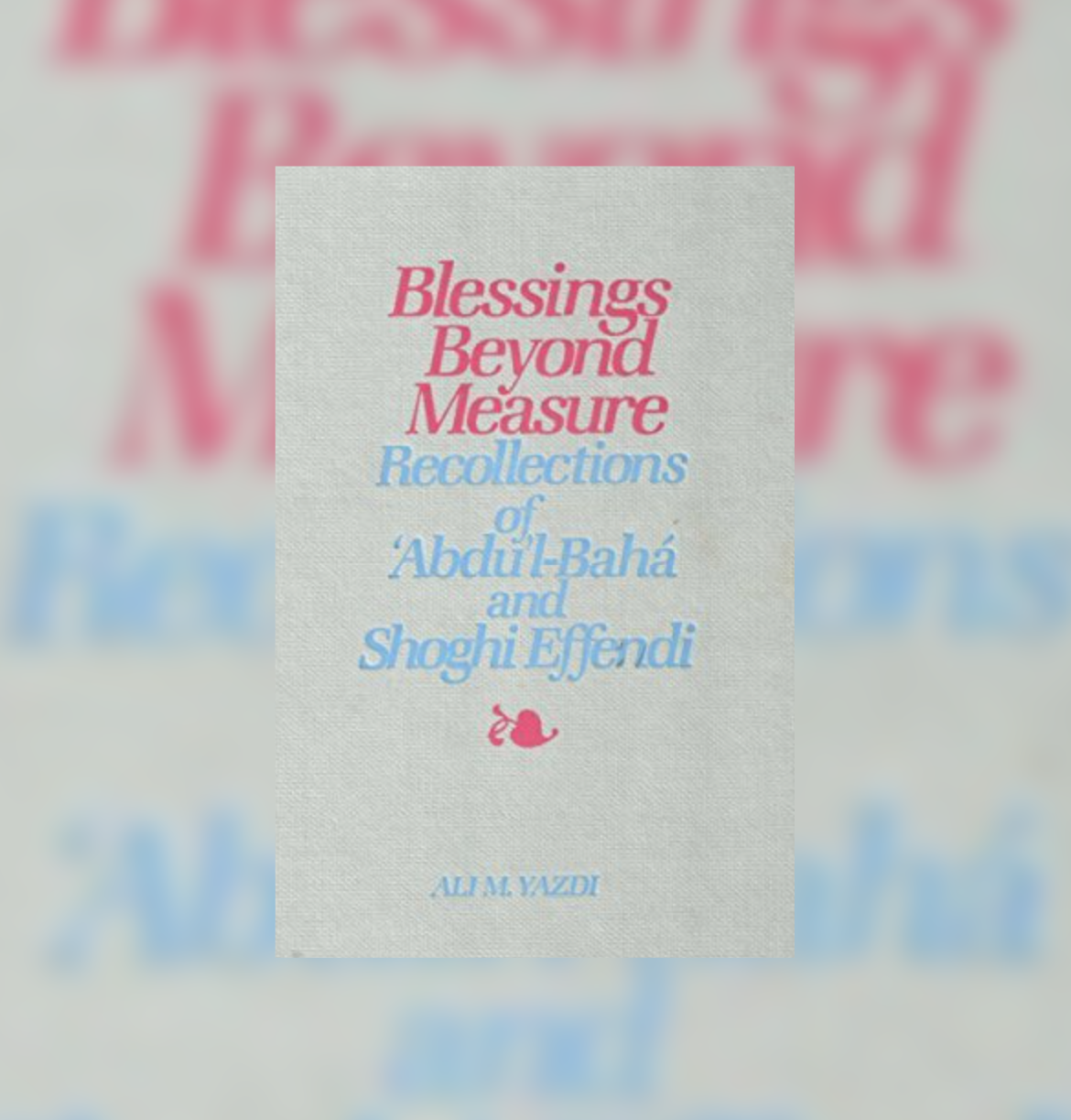
Many of the most touching stories in Shoghi Effendi’s childhood which shed light on the degree of his love and devotion for 'Abdu'l-Bahá are from ‘Alí Yazdí’s Blessings Beyond Measure, perhaps the most extraordinary Bahá'í memoir there is.
Every page of this book is filled with gems from the Heroic and Formative Age of the Faith. ‘Alí Yazdí was blessed to be Shoghi Effendi’s closest and most intimate friend in their childhood and adolescence.
They remained friends to the end of Shoghi Effendi’s life, but as Guardian, Shoghi Effendi’s life was propelled into shaping the Administrative Order of the Faith of Bahá'u'lláh, protecting the Cause, and guiding the believers, and so ‘Alí Yazdí’s memoirs of Shoghi Effendi stop in 1920.
In the pages of this incomparable book, you will find intimate glimpses of 'Abdu'l-Bahá and Shoghi Effendi you can encounter absolutely nowhere else.
The epigraph for ‘Alí Yazdí’s memoirs is a quote by 'Abdu'l-Bahá:
Centuries, nay ages, must pass away, ere the Day-Star of Truth shineth again in its mid-summer splendor, or appeareth once more in the radiance of its vernal glory… How thankful must we be for having been made in this Day the recipients of so overwhelming a favor!
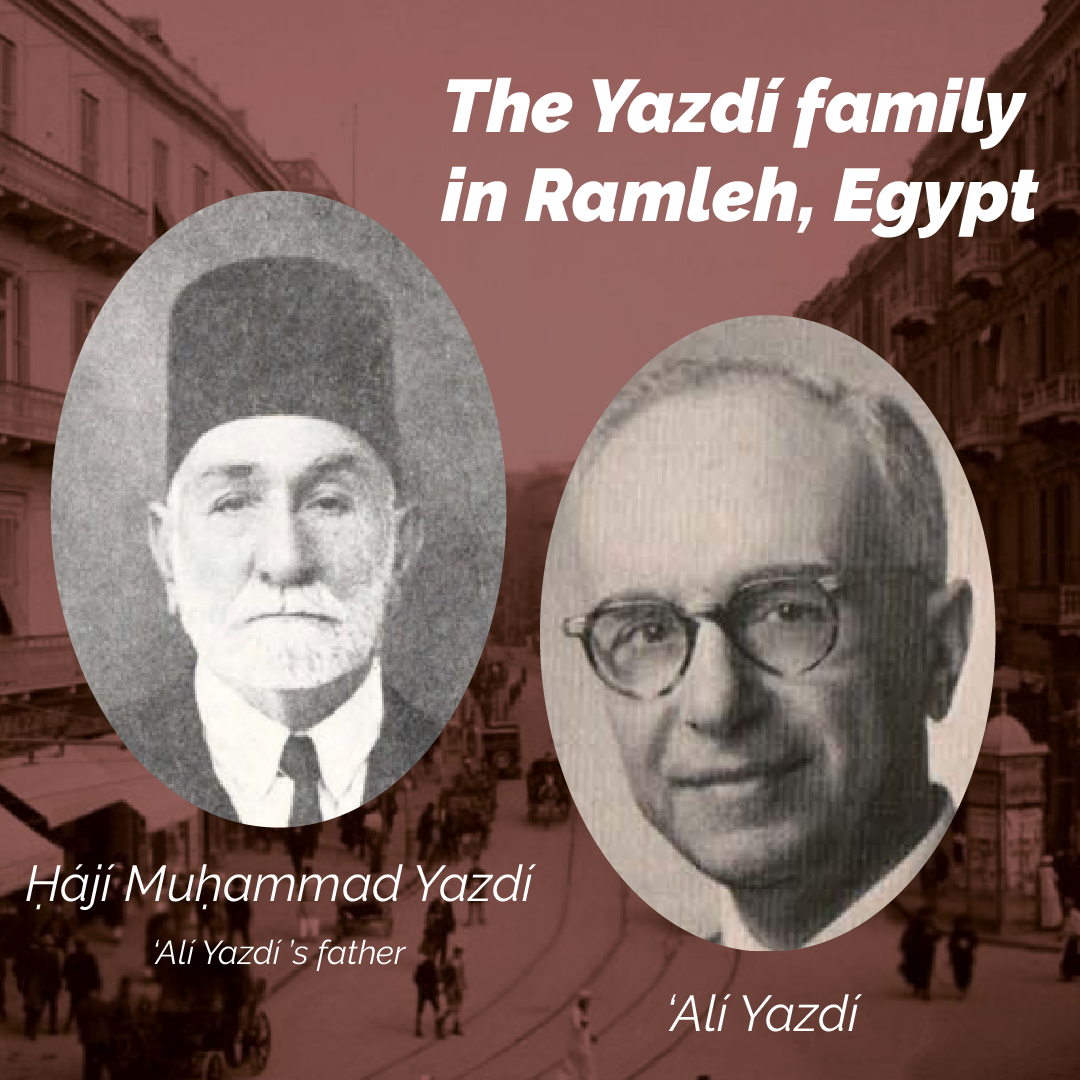
The Yazdí family in Ramleh, Egypt: Ḥájí Muḥammad Yazdí, ‘Alí Yazdí’s father, and ‘Alí Yazdí, Shoghi Effendi’s childhood friend. Sources: Bahaipedia.
Before ‘Alí Yazdí and Shoghi Effendi meet, in the next story, it is relevant to go back 54 years in time, to the moment the Yazdí family bound their destiny with that of the Faith, in the earliest years of Bahá'u'lláh’s ministry.
Six years after the Báb’s Martyrdom, something was stirring in the heart of Persia. people were secretly spreading the news of this Youth, who had brought a new, revivifying message, at grave risk to their own lives. This is where the story of the Yazdí family begins, in the years after the Báb’s Martyrdom and before Bahá'u'lláh’s Declaration.
Around 1856, Shaykh ‘Alí—‘Alí Yazdí’s oldest uncle—was 14 years old, and he became an ardent Bábí. His father, Ḥájí ‘Abdu’r-Raḥím, and the entire family was alarmed. Shaykh ‘Alí’s conversion could destroy their lives and ruin the family, but Shaykh ‘Alí was on fire.
Gradually, one by one, Shaykh ‘Alí converted his entire family, his father, Ḥájí ‘Abdu’r-Raḥím, his mother, Fáṭimih Sulṭán, and his three brothers, Ḥájí Muḥammad Yazdí—‘Alí Yazdí’s father—Mírzá Ḥusayn Yazdí, and Aḥmad Yazdí.
Ḥájí Muḥammad Yazdí left Persia with a donkey and very little money, and headed for the Holy Land, to enter into the presence of Bahá'u'lláh, where he arrived in 1870. Soon, the entire Yazdí family was in 'Akká, and Bahá'u'lláh sent them each on a mission.
Bahá'u'lláh sent Ḥájí Muḥammad Yazdí to Egypt with two other Bahá'ís. The three of them worked hard and built a successful business they named “Société Rúhaníyyih” (Spiritual Company), which soon became the largest and best department story in Egypt. Each of the three partners established the Faith in Alexandria, Cairo and Port Said. Ḥájí Muḥammad Yazdí was the one who settled in the beautiful suburb of Ramleh, in Alexandria. ‘Alí Yazdí was born in Alexandria in 1899, two years after Shoghi Effendi.
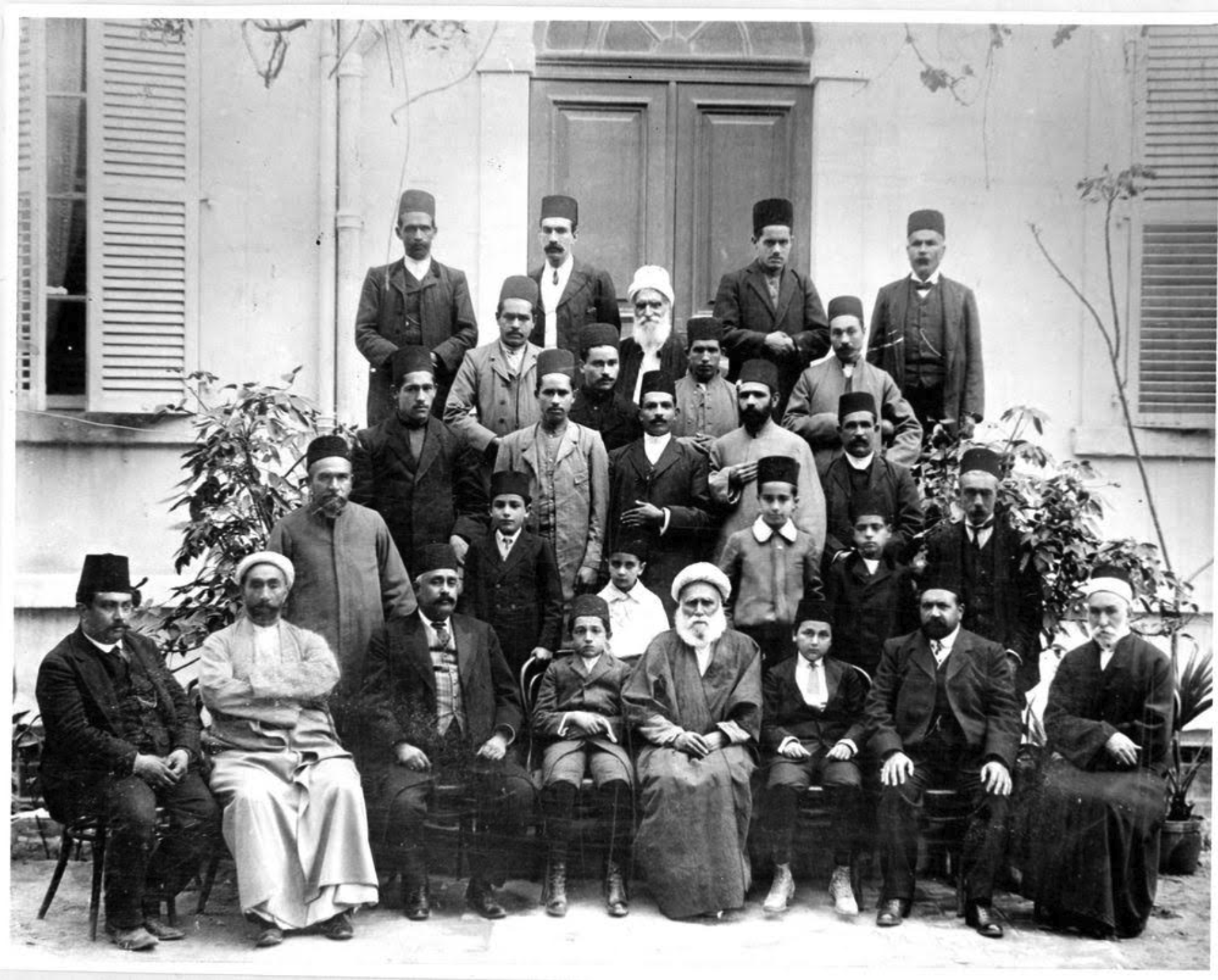
Shoghi Effendi in Ramleh in 1910. Seated in the front row, in the very center of the photograph is Ḥájí Amín, with a white beard—later elevated posthumously to the rank of Hand of the Cause by the Guardian—next to him is Shoghi Effendi. Standing behind Shoghi Effendi is ‘Alí Yazdí. ‘Alí Yazdí’s father, Ḥájí Muḥammad Yazdí is seated third from the right in the front row. Source: Blessings Beyond Measure by ‘Alí Yazdí, page 51. Higher resolution photograph provided by Dr. Behrad Majidi with our many thanks.
Ḥájí Muḥammad Yazdí was a devoted Bahá'í who rendered countless services to Bahá'u'lláh and 'Abdu'l-Bahá. He was born in Yazd the year of the Martyrdom of the Báb, in 1850. By the time he was 20, he had pioneered to Egypt at Bahá'u'lláh’s request, and was responsible for mailing Bahá'u'lláh’s Tablets to Persia from Egypt. He married Jamílih Khánum and they had five children: ‘Alí, ‘Abdu’l-Raḥím, Azíz, Rawshan, and a daughter, Fáṭimih-Sulṭán.
In 1910, immediately after leaving Haifa on 29 August 1910, 'Abdu'l-Bahá sent for Shoghi Effendi to join him Port Said, Egypt with the next ship. From there, Shoghi Effendi traveled to Ramleh with 'Abdu'l-Bahá for several months.
Shoghi Effendi—13 years old—and ‘Alí Yazdí, 11, attended the same school for a while, l’École des frères (The Brothers’ School) and became very good friends during this time. Their friendship would continue through their studies together, and into their youth.
‘Alí Yazdí described Shoghi Effendi at 13 as always dignified—even as a young boy—but also friendly, energetic, eager and full of life.
‘Alí Yazdí visited their villa often, spending time with Shoghi Effendi and waiting to catch a glimpse of 'Abdu'l-Bahá from the garden. ‘Alí was privileged to see 'Abdu'l-Bahá many times.
One day, the Master even came to his home to give a talk to a large group of Bahá'ís. Everyone inside was busy talking until suddenly, the room went silent.
‘Alí heard 'Abdu'l-Bahá’s beautiful, resonant voice, and He swept into the room, His robe flowing, straight as an arrow, His head thrown back. He was wearing a white turban around an ivory-colored cap, His silver grey hair falling in waves at His shoulders. 'Abdu'l-Bahá looked at everyone and welcomed them all saying:
Khushámadíd! Khushámadíd! (Welcome! Welcome!).
This was the first time ‘Alí Yazdí ever heard 'Abdu'l-Bahá give a talk. For the nine months that 'Abdu'l-Bahá spent in Ramleh, he would have the privilege of hearing the Master speak on many subjects.
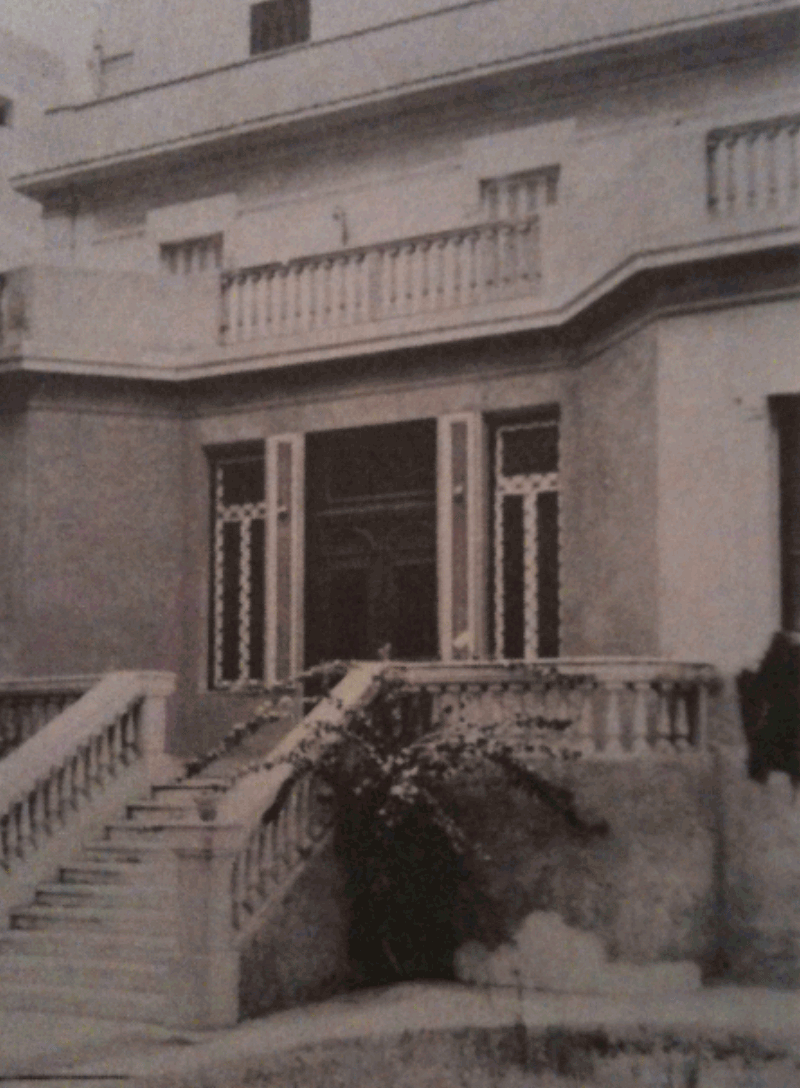
Villa occupied by the Master in Ramleh in 1912. The Journey West.
'Abdu'l-Bahá had tried to travel to Europe after a month spent in Port Said on 1 October 1910.
Once again, without giving anyone advance notice, ‘Abdu’l-Bahá left Port Said with the intention to travel to Europe. It became immediately obvious that ‘Abdu’l-Bahá’s health at this stage would simply not allow 'Abdu'l-Bahá to undertake such a long trip.
'Abdu'l-Bahá made the decision to abort the trip and arrived in Alexandria a few days after 1 October 1910. After a few days in the Victoria Hotel, ‘Abdu’l- Bahá, utterly exhausted, moved to a modest, comfortable villa in Ramleh, a pleasant suburb of Alexandria.
In Ramleh, Shoghi Effendi and 'Abdu'l-Bahá lived in a lovely villa in a residential neighborhood, close to the Mediterranean Sea. Their villa had a garden with blossoms and flowering shrubs.
'Abdu'l-Bahá spent the winter of 1910 and the spring of 1911, recovering from extreme fatigue.
The Master was building up strength for his first European journey to France, Switzerland and England, which would begin in August 1911.
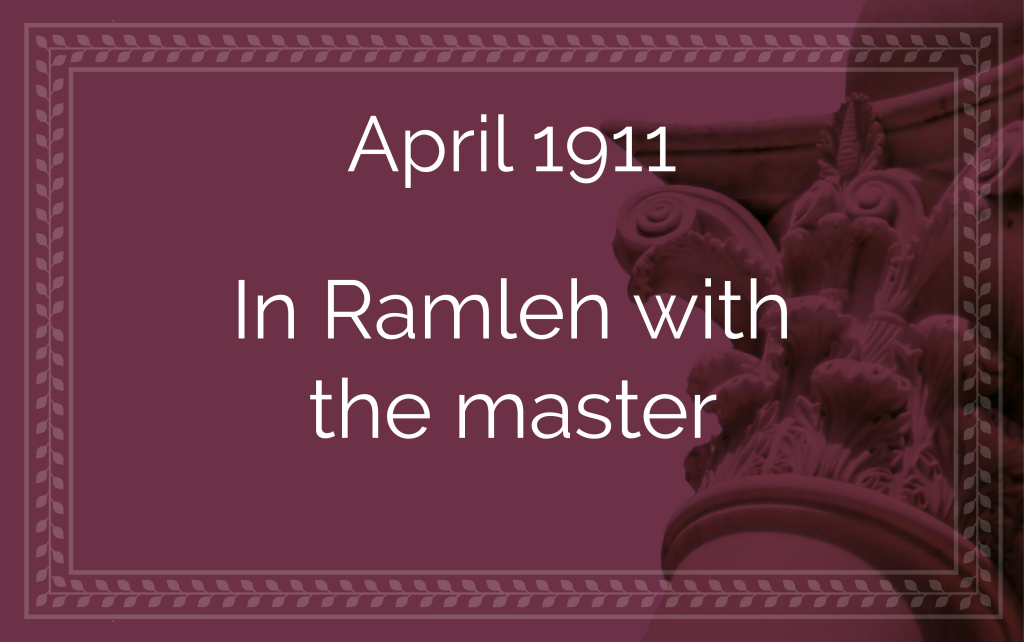
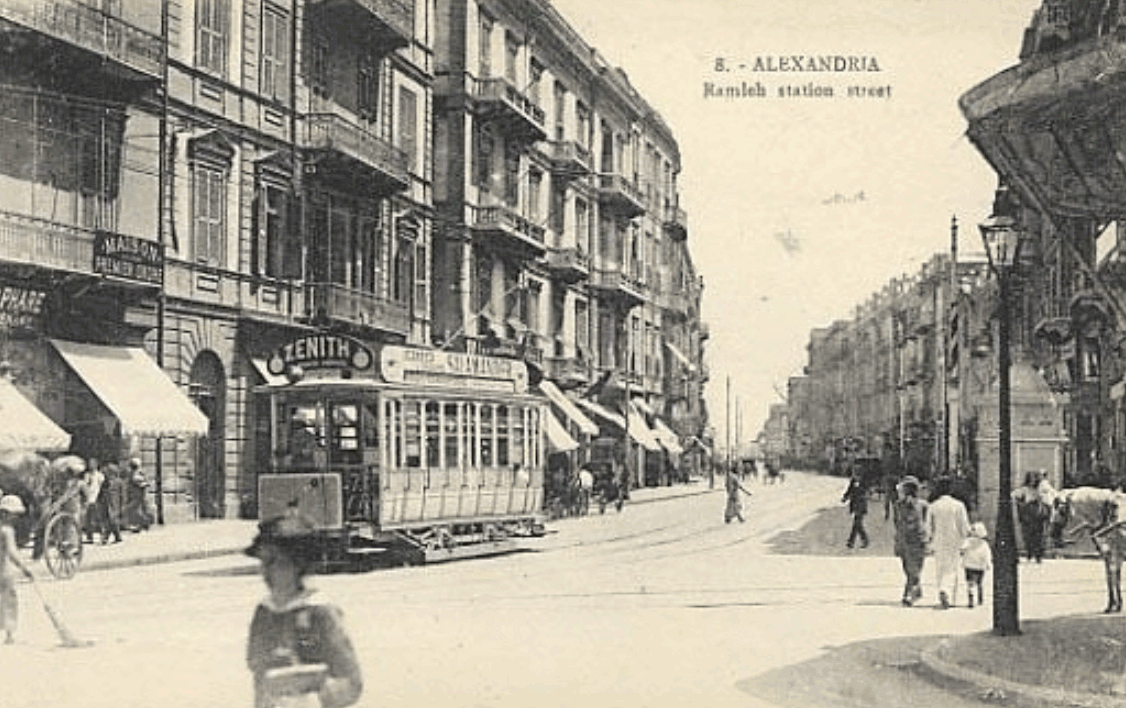
Ramleh, Alexandria tram station in 1903. 'Abdu'l-Bahá often took the tram alone in Ramleh, paying for His fare Himself. Source: Wikimedia Commons.
We do not know exactly when Shoghi Effendi returned to Ramleh the following year or how long he stayed, but we know for certain that he was with 'Abdu'l-Bahá some time in April 1911.
Although 'Abdu'l-Bahá was convalescing, He radiated vitality and was surrounded at all times with a whirlwind of activity .
As usual, and His days were filled with Bahá'í pilgrims, local and international people attracted by “’Abbás Effendi's” magnetic presence. Those who were not Bahá'ís only knew 'Abdu'l-Bahá by His given name, ‘Abbás Effendi.
'Abdu'l-Bahá entertained often, receiving Bahá'ís, public figures, aristocrats, clerics, writers, and also visiting the poor, the ill, and the needy, doing everything He could to bring joy to people’s lives, as was His lifelong habit, no matter where He was.
'Abdu'l-Bahá received a mountain of correspondence, letters and cables from isolated Persian believers in villages to royalty and in response to which He dictated Tablets to two secretaries simultaneously, with His unfailing love and courtesy.
There is no doubt that Shoghi Effendi was learning from his Grandfather in every one of his Beloved 'Abdu'l-Bahá’s acts or words—written or spoken. 'Abdu'l-Bahá had a tremendous centrifugal force, and one of the most unforgettable and distinctive characteristics of Shoghi Effendi as the Guardian was his constant state of energy, activity, eagerness.
Little wonder from Whom Shoghi Effendi inherited this extraordinary world-building temperament.
'Abdu'l-Bahá lived a simple life in Ramleh, walking the streets, riding the electric tramway from Ramleh to Alexandria and paying for His own fare and making change, like everyone else. 'Abdu'l-Bahá’s second-floor reception room was open to Bahá'ís and non-believers alike. When Louis Gregory asked a humble family they were visiting if they knew 'Abdu'l-Bahá and they replied:
O yes, He has been in this house.
'Abdu'l-Bahá knew how to make everyone happy, wherever He was. No matter where 'Abdu'l-Bahá might be, He treated the people of that city as if they were His own children.
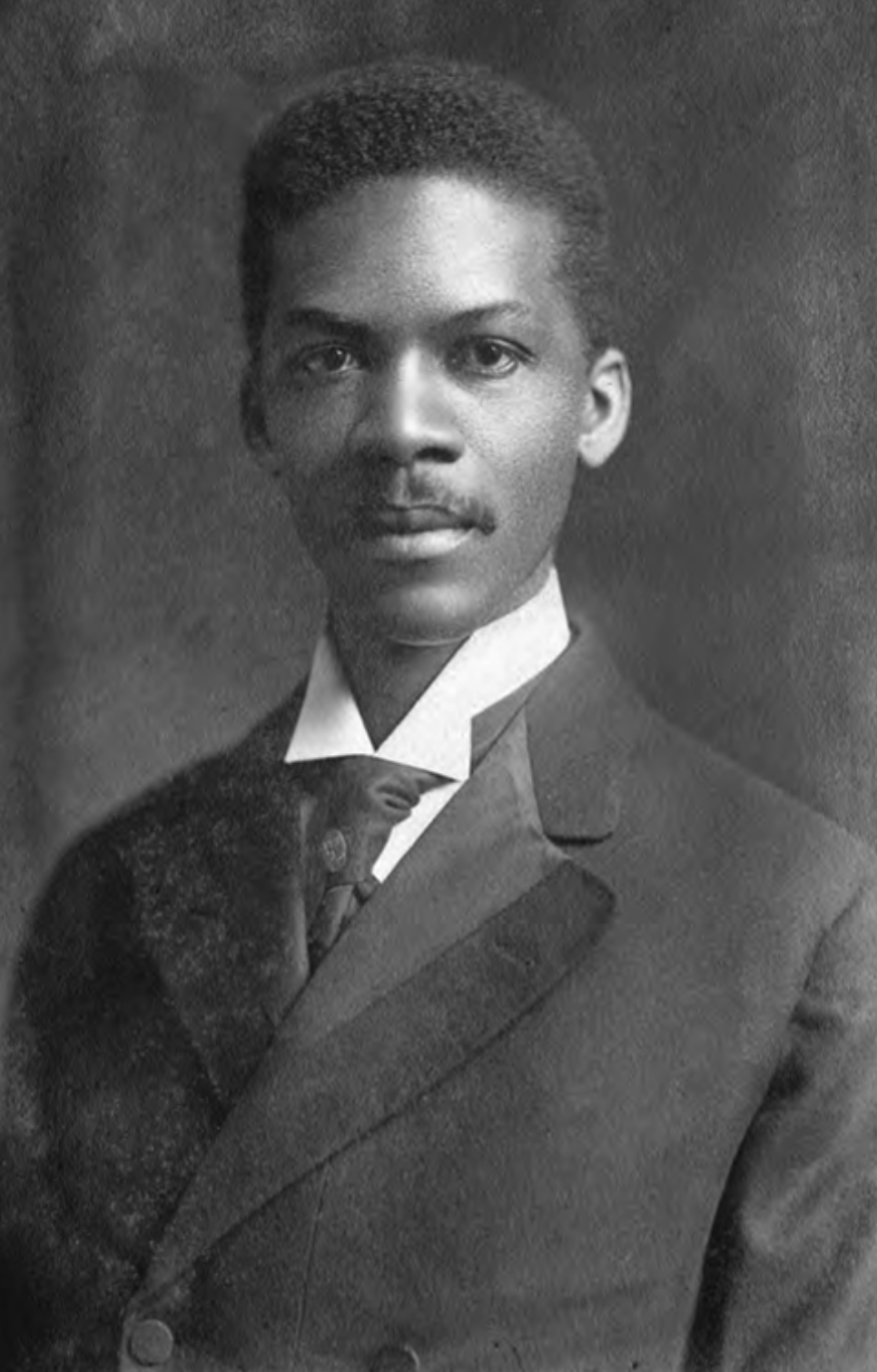
Louis G. Gregory as a young man, probably on graduating from Fisk University, 1896. Louis G. Gregory Bahá'í Museum.
On 10 April 1911, Louis Gregory was finally ushered in to meet 'Abdu'l-Bahá for the first time, and his natural impulse at entering His presence was to kneel gracefully. 'Abdu'l-Bahá, seeing Louis Gregory, rose and went to him, bent over and kissed his bowed head. After Robert Turner, 14 years earlier in 1898, Louis Gregory was only the second African-American Bahá'í to ever meet 'Abdu'l-Bahá, and the Master was overjoyed.
Shortly after welcoming Louis Gregory, 'Abdu'l-Bahá asked a difficult question about the dominating passion of His life—racial amity:
What of the conflict between the white and colored races?
Louis Gregory instantly felt that 'Abdu'l-Bahá, although never having set foot in America, knew far more about this situation than he did, but he answered that there was a lot of friction between whites and blacks in the United States, living under Jim Crow Laws—mandated racial segregation in all public places.
When Louis Gregory mentioned that Bahá'í meetings were also segregated by race as well, 'Abdu'l-Bahá stated:
There must be no distinctions in Bahá’í meetings. All are equal.
After six days in the presence of 'Abdu'l-Bahá, Louis Gregory and his two pilgrim companions, Neville Meakin—a British spiritualist—and Louisa Mathews—a British Bahá'í and Louis Gregory’s future wife—went to say farewell to the Master before they left Ramleh for the Holy Land, and to receive 'Abdu'l-Bahá’s guidance on their pilgrimage.
When the three Bahá'ís arrived at 'Abdu'l-Bahá’s house in Ramleh, they were affectionately greeted by a 14-year-old Shoghi Effendi and one of his cousins.
During the farewell visit, Neville Meakin says to 'Abdu'l-Bahá they hope to find him back at home in Haifa when they return from pilgrimage, and Louis Gregory adds:
Another year, we hope to see You in America!
To which 'Abdu'l-Bahá responds, with His eyes twinkling:
Will you bring an aeroplane and steal Me away?
'Abdu'l-Bahá bid the pilgrims farewell, and asked them to pray for Him at the Shrine of Bahá'u'lláh, saying it always saddened him to be unable to visit the Holy Shrines when He travels abroad.
After his stay in 1911, Shoghi Effendi returned to Beirut to study.
He would return to Alexandria in the early spring of 1912.
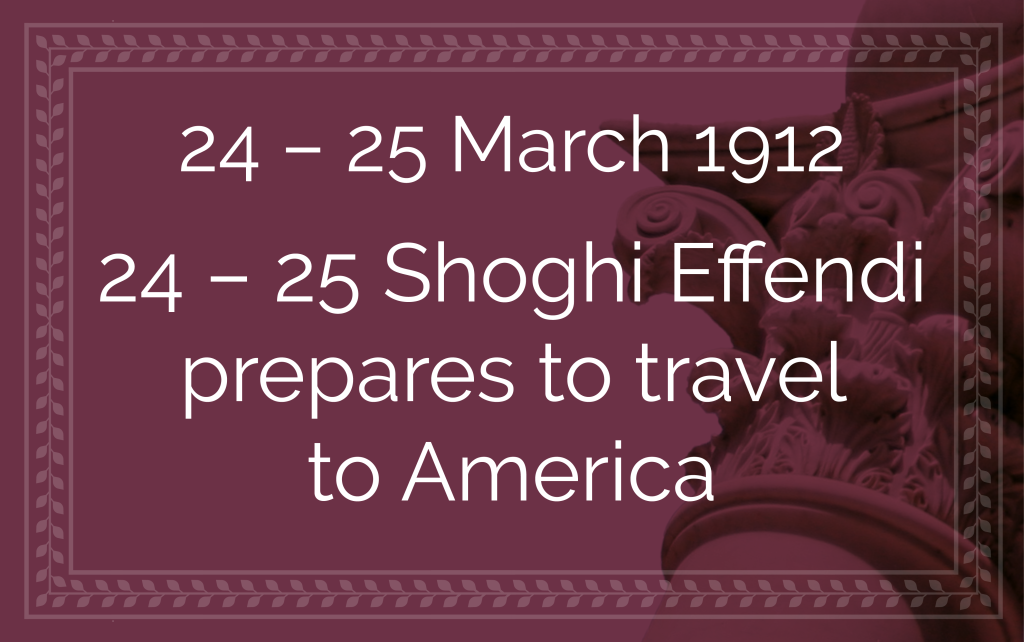
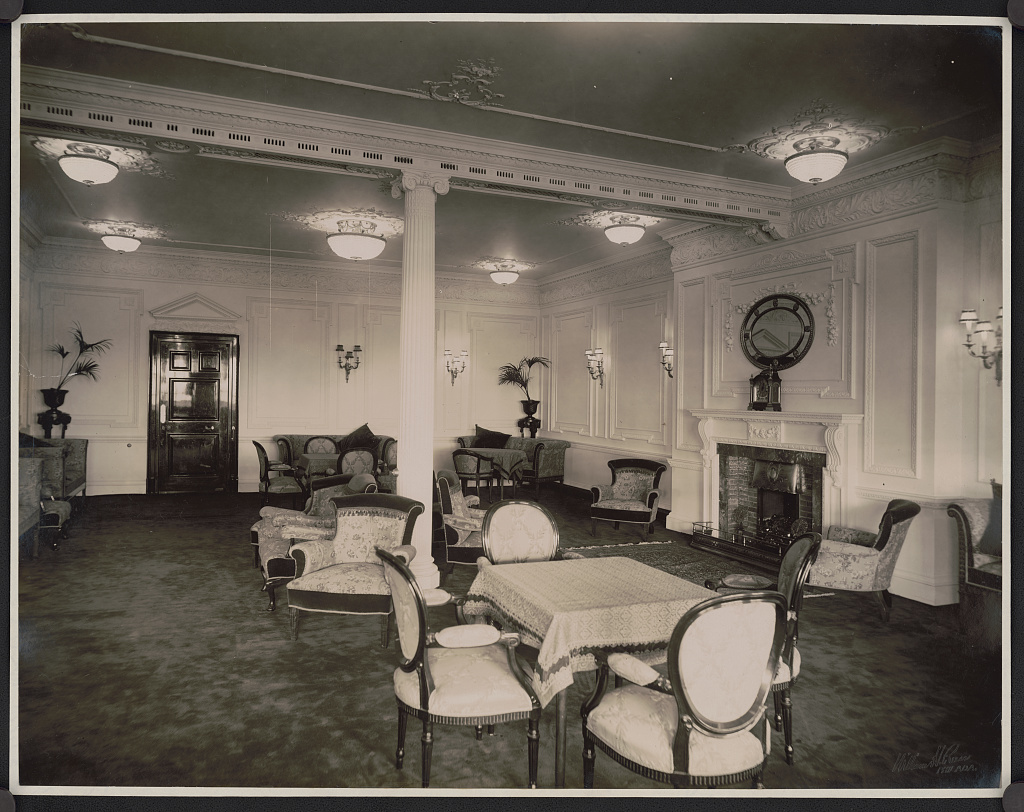
White Star Steamship Olympic reading room, very similar to the reading room inside the RMS Cedric, from the same company. Source: Wikimedia Commons.
After his first journey to Europe from August to December 1911, 'Abdu'l-Bahá returned to winter in Alexandria, and decided to take Shoghi Effendi with Him to America in the early spring of 1912.
'Abdu'l-Bahá ordered long robes for His grandson, and two turbans, one green and one white, and when Shoghi Effendi arrived in Alexandria, 'Abdu'l-Bahá’s eyes shone with pride and pleasure at seeing His grandson try on his new clothes.
Shoghi Effendi, was 14 years old now, and while he was studying in Beirut, he had been following His beloved Grandfather's travels in France, Switzerland, England, and back to France. He had heard so much about America and was overjoyed to accompany his Grandfather to the United States and Canada, the next and most momentous leg of the Master’s teaching journeys to the West.
Shoghi Effendi was burning with anticipation for the voyage, an extremely rare opportunity for a boy his age in 1912, but more so even at the idea of being at 'Abdu'l-Bahá's side as He traveled through North America and promulgated the message of Bahá'u'lláh.
The day before they set sail, Shoghi Effendi asked his close friend ‘Alí Yazdí:
Shaykh ‘Alí, do you want to go to the ship with me and see my cabin?”
‘Alí Yazdí enthusiastically replied:
Sure!
The two boys, joined by other Bahá'ís, took the electric tram from Ramleh to the harbor of Alexandria, and before them was the Cedric, a White Star Liner.
It was a majestic ship, one of only two that traveled the Alexandria to New York route with a single stop in Naples.
Shoghi Effendi took ‘Alí Yazdí on board and gave him the complete tour of the ship, from the upstairs to the dining room and his cabin and everything on the great ship. ‘Alí Yazdí was very happy for Shoghi Effendi, who was indescribably overjoyed at the idea of this exciting journey.
‘Alí made Shoghi Effendi promise to write to him when he arrived in America, and Shoghi Effendi said he would.
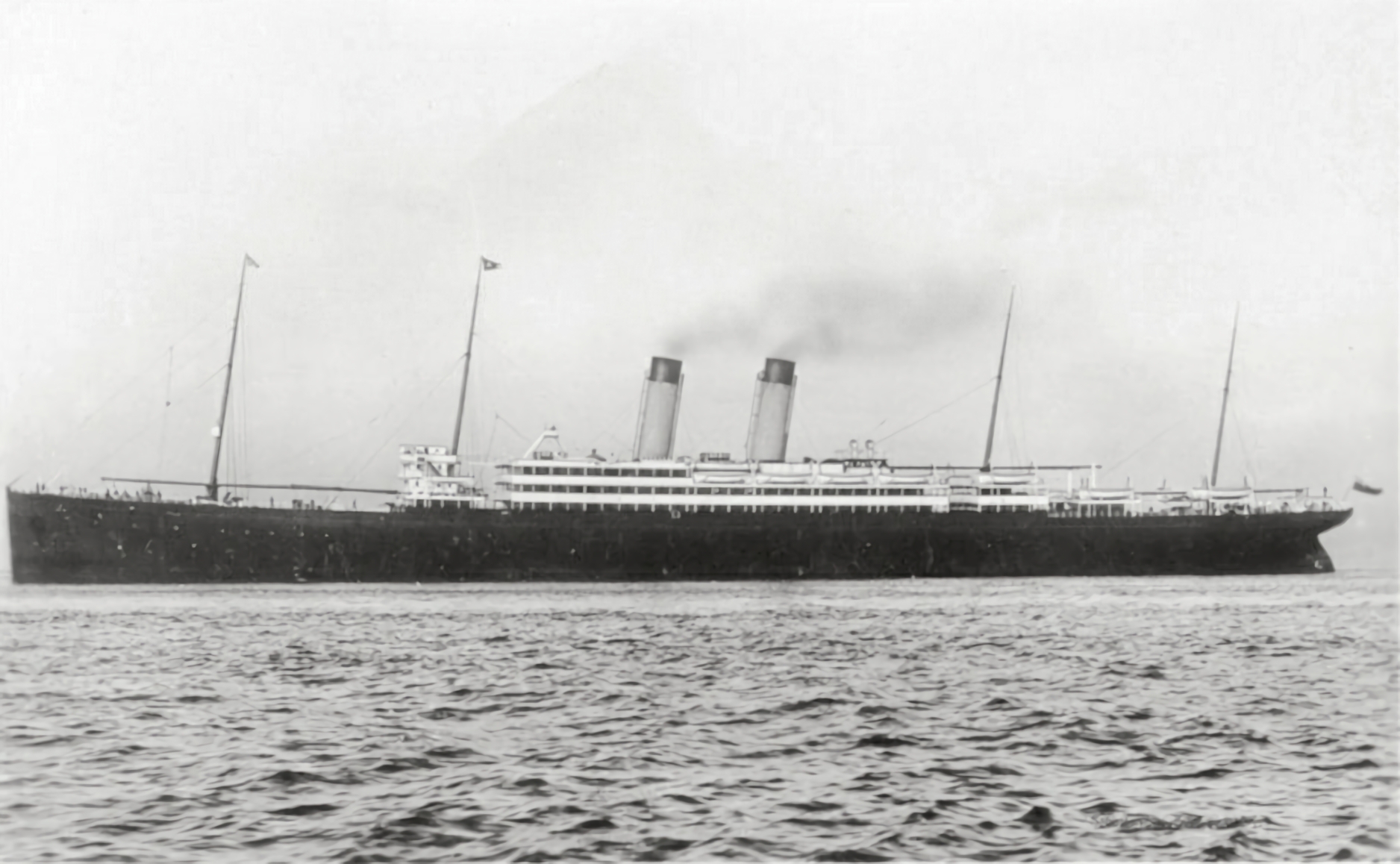
The British passenger liner Cedric of the White Star Lines (same company as the Titanic) photographed during a North Atlantic Route voyage. Picture taken between 1903 and circa 1914. Wikimedia Commons.
On Monday March 25, 1912, ‘Abdu’l-Bahá and Shoghi Effendi left the villa in Ramleh as 'Abdu'l-Bahá turned to wave His last farewell to His anxious and worried family, looking down at Him from the veranda.
Trailed by about thirty silent believers, following behind them, 'Abdu'l-Bahá and Shoghi Effendi silently walked several blocks towards the shore and took the electric tram to the port of Alexandria.
'Abdu'l-Bahá and Shoghi Effendi boarded the steamship with 'Abdu'l-Bahá’s personal attendants, Siyyid Asadu'lláh-i-Qumí and Áqá Khusraw, 'Abdu'l-Bahá’s Burmese attendant and cook, Mírzá Maḥmúd-i-Zarqání and Mírzá Munír-i-Zayn, and His translator, Dr. Ameen Fareed [Amínu'lláh Faríd], the redoubtable, evil Covenant-breaker who happened to be one of the nephews of Munírih Khánum, 'Abdu'l-Bahá’s wife.
'Abdu'l-Bahá and Shoghi Effendi were off to America!
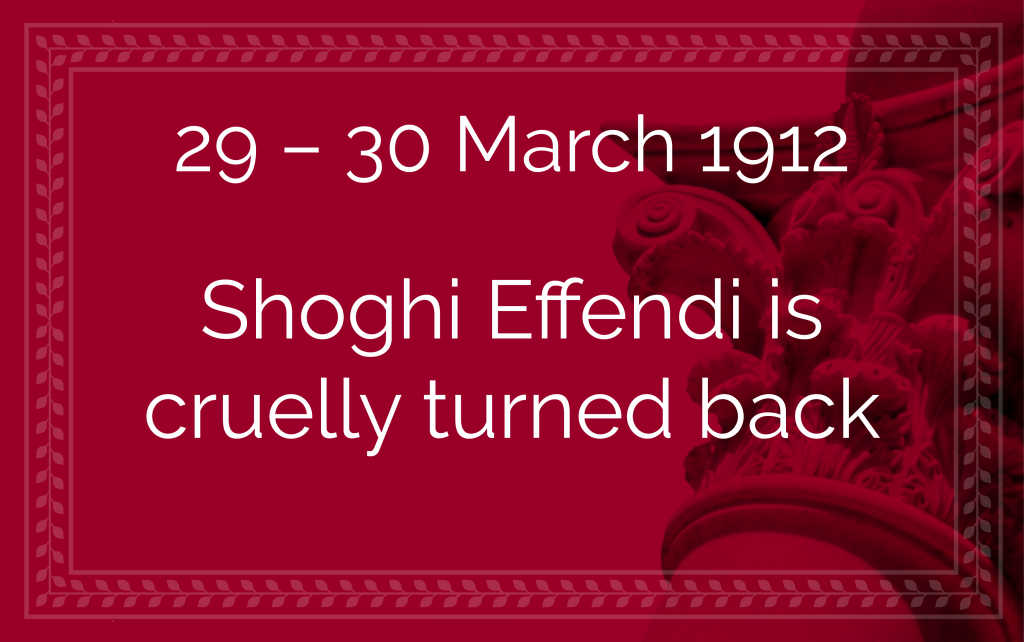
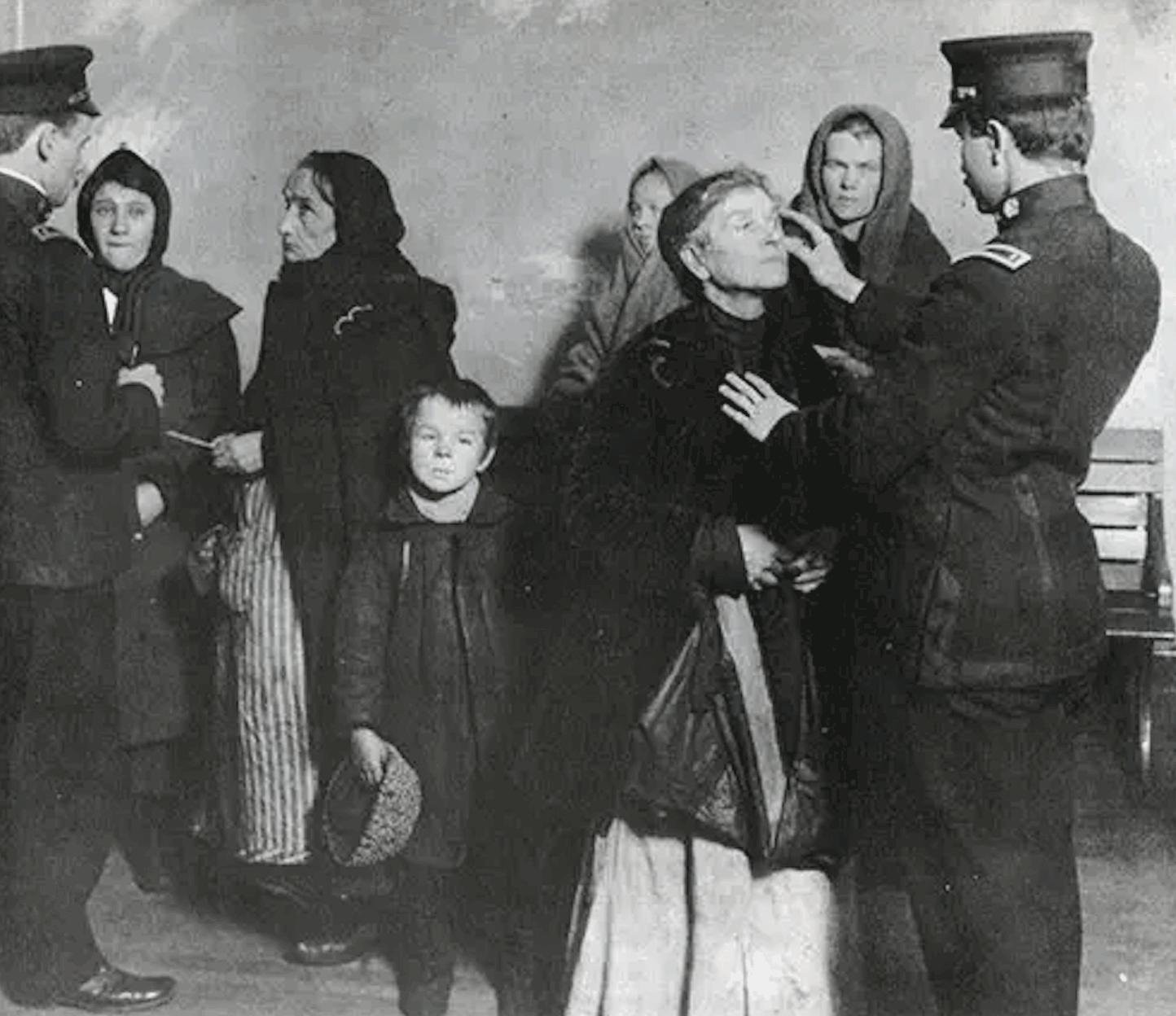
A medical inspection at Ellis Island, New York 1912. The health inspector is looking for trachoma inside the passenger’s eyes, the same inspection Shoghi Effendi was subjected to in Naples, that same year. Source: Library of Congress.
When the Cedric docked at Naples, its only stop before New York, six western Bahá'ís boarded—including Miss Louisa Matthew of London, Louis Gregory’s future wife, along with a group of Italian physicians.
The physicians were aboard to conduct physical exams before the passengers arrived in America, which included an eye exam to rule out trachoma, a contagious bacterial infection of the eyes which, untreated, could lead to blindness. Trachoma was such a serious epidemic that no one could enter the United States with any sign of it.
For historical context, the United States had been battling a trachoma epidemic for decades, with a “trachoma belt,” extending east from Virginia through Kentucky, Tennessee, Missouri, Arkansas, Alabama, and Oklahoma. In 1912, a United States Public Health Service study found that nearly 23% of Native Americans—roughly 72,000 people—had trachoma.
The doctors declared three Bahá'ís unfit for travel to New York because—allegedly—they had signs of trachoma: Áqá Khusraw, Mírzá Munír-i-Zayn, and Shoghi Effendi.
This was entirely engineered by Dr. Fareed.
As early as 1912, he had already started down an ambitious path of ego-driven family intrigues that would eventually lead him to Covenant-breaking, and he would make 'Abdu'l-Bahá’s’ life miserable in America. It was Dr. Fareed who had suggested to the Italian authorities that the Bahá’í passengers were Ottomans, with whom the Italians were currently at war.
When the Italian doctors falsely diagnosed Shoghi Effendi and the other two Bahá'ís, Dr. Fareed took their side and insisted they absolutely had to be sent back, raising all sorts of arguments in support of the Italian doctors’ diagnosis.
Shoghi Effendi always knew that Dr. Fareed was the one who had prevented him from going on this journey with 'Abdu'l-Bahá. His eyes, from earliest childhood had always been perfect, and there was nothing wrong with them in Naples, either.
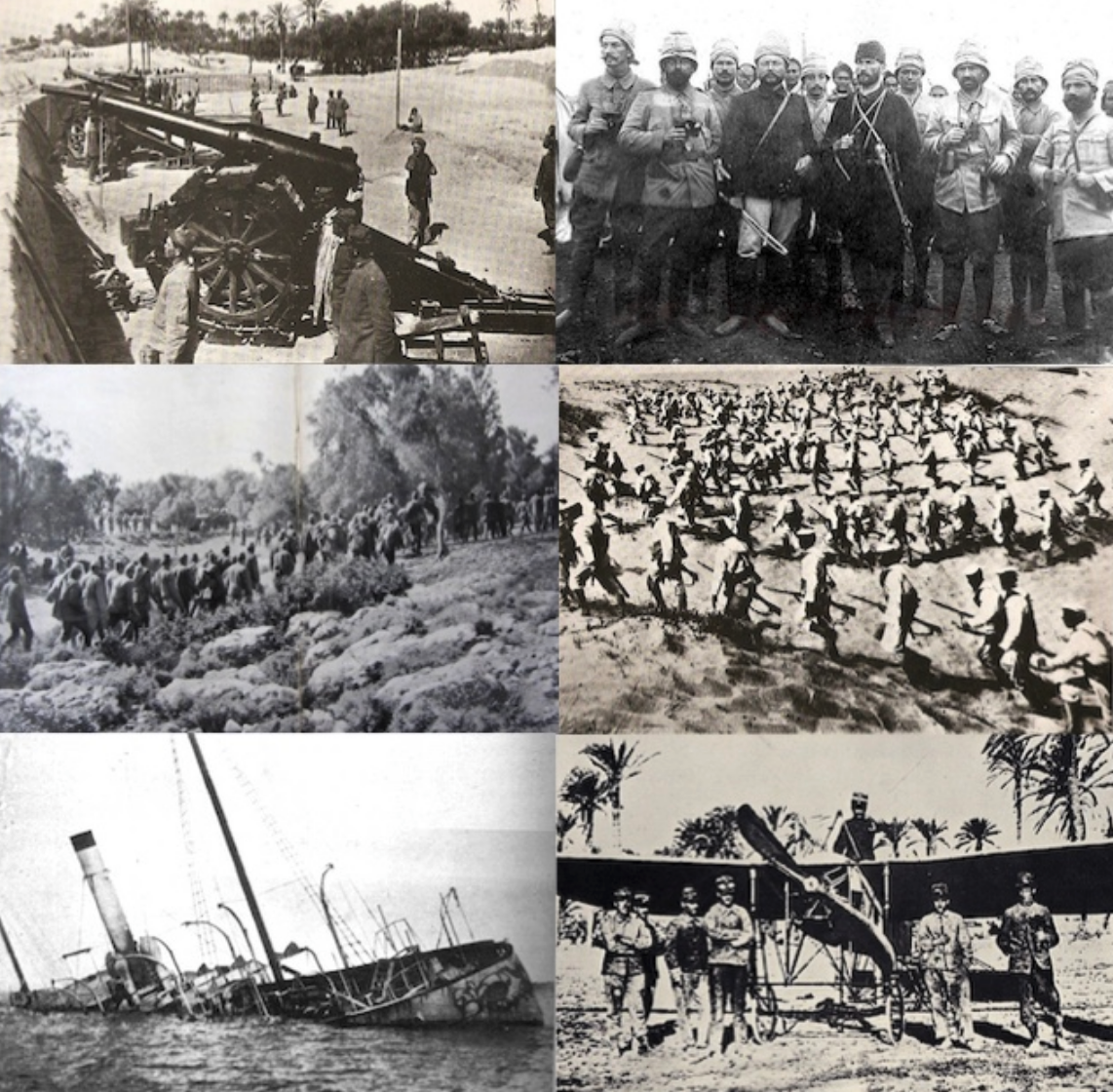
Collage of the Italo-Turkish war, a source of discrimination against all Easterners in Italy at the time, which is what 'Abdu'l-Bahá is referring to when He says "They think we are Turks". Wikimedia Commons.
'Abdu'l-Bahá, His companions and the six western Bahá'ís pleaded with the Italian doctors for a full day, to no avail. The Italian doctors insisted that if Shoghi Effendi and the other two Bahá'ís sailed to New York, they would be turned back from America, so there was no point for them to stay on the ship.
‘Abdu'l-Bahá was grieved. He said:
They think we are Turks.
In the end, 'Abdu'l-Bahá had no choice but to ask Shoghi Effendi, Áqá Khusráw, and Mírzá Munír-i-Zayn, to obey the Italian authorities and disembark, but not without bestowing on them His utmost kindness and blessings and bidding them farewell.
Shoghi Effendi and his two companions left the ship deeply sad and dispirited.
'Abdu’l-Bahá was greatly grieved and saddened by the event, but He stayed quiet. He had to. He had to protect the secret of Shoghi Effendi’s future destiny from being revealed. Worse problems could have ensued, should envious and jealous people have found out Shoghi Effendi was to succeed ‘Abdu’l-Bahá, and a worse fate than being turned back from a steamship could have occurred.
That same day, 'Abdu'l-Bahá said:
There is a wisdom in this matter which will become known later.
What 'Abdu'l-Bahá said, that evening of 30 March 1912 to His friends is deeply telling:
These Italians thought we were Turks and they reported us as such. They have stopped three of us. One was the secretary and one was the cook; this was not important. But this child, Shoghi Effendi, was helpless, why were they so strict with him? They have ill-treated us in this way, but I have always given support and assistance to their community whether in Alexandria or in Haifa...
Can anyone imagine the magnitude of Shoghi Effendi’s heartbreak at having to disembark from the ship, be turned back, and having to watch his beloved Grandfather sail away to America without him?
This was supposed to be Shoghi Effendi’s first great adventure, and he was going to live it with the person he idolized and loved the most in the entire world.
Such a tremendous blow at such a young, impressionable age would most certainly prepare him for the blows he would continue to receive when the mantle of the Covenant would come to rest on the shoulders of the Guardian.
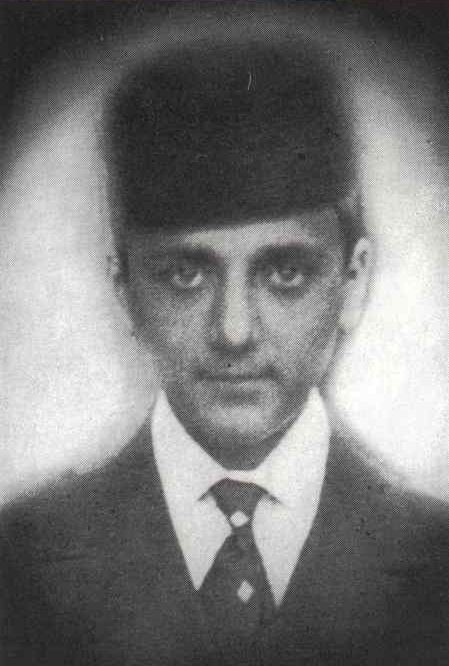
Shoghi Effendi at 15 in 1912, during his studies in Beirut. Médiathèque Bahá'íe.
When Shoghi Effendi arrived in Ramleh, he went to see doctors who confirmed, beyond the shadow of a doubt that he had absolutely no signs of trachoma.
Shoghi Effendi was utterly heartbroken.
He longed to be with 'Abdu'l-Bahá, he had so desired to travel to America with his beloved Grandfather and witness Him spreading the Faith he loved with all his heart.
His dream was broken, and his spiritual pain affected his physical health.
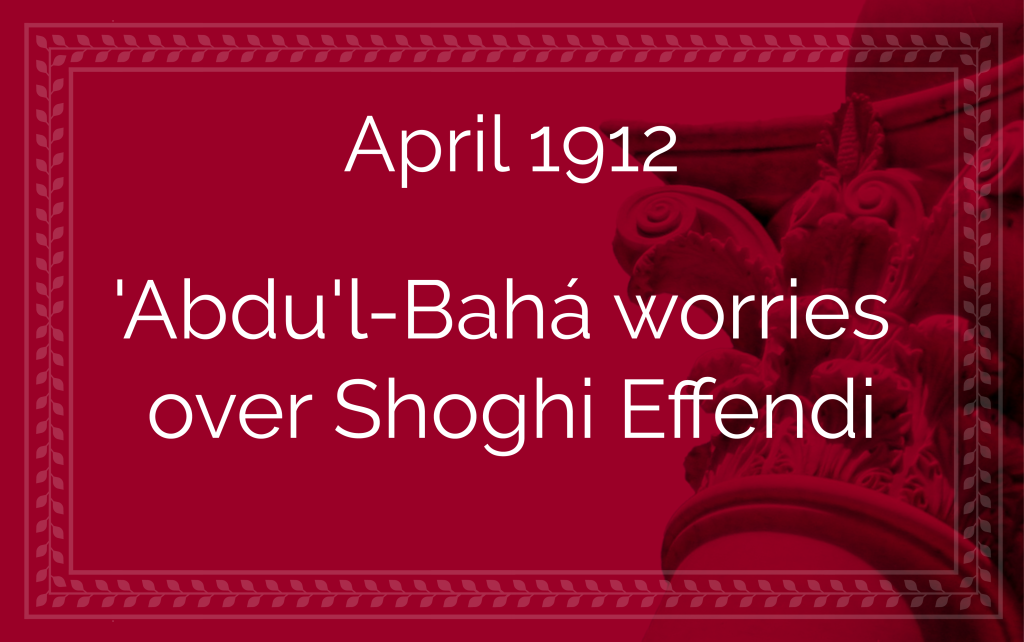
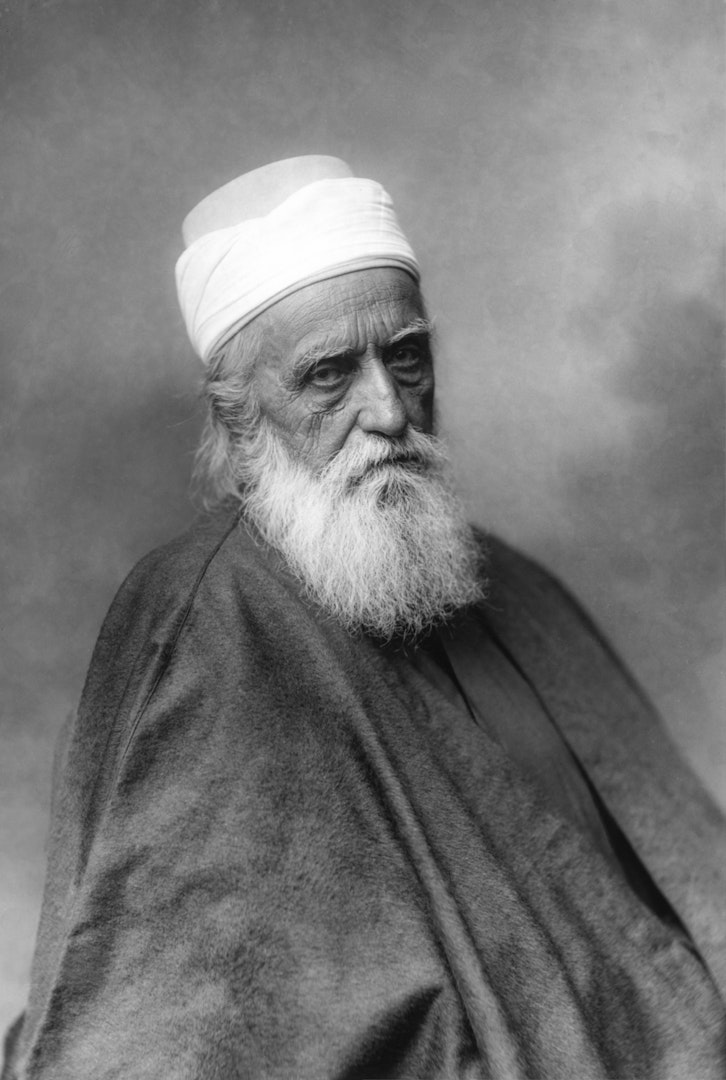
Portrait of ‘Abdu’l-Bahá taken in Paris, France, October 1911. Source: Bahá'í Media Bank, © Bahá'í International Community 2023.
'Abdu'l-Bahá must have felt tremendous anxiety at seeing His grandson so unfairly and cruelly turned back, especially since the reason was entirely fabricated.
'Abdu'l-Bahá also knew that Shoghi Effendi must be suffering immensely at having been ripped away from His presence so suddenly.
We know that Shoghi Effendi was on 'Abdu'l-Bahá’s mind during His exhausting months in America and Europe because He mentions Shoghi Effendi in three Tablets He sent to His sister, Bahíyyih Khánum:
Write to me at once about Shoghi Effendi's condition, informing me fully and hiding nothing; this is the best way.
Kiss the light of the eyes of the company of spiritual souls, Shoghi Effendi.
Kiss the fresh flower of the garden of sweetness, Shoghi Effendi.
Around this time, there is an undated Tablet from 'Abdu'l-Bahá addressed to Shoghi Effendi, where His Grandfather worries about his health:
He is God!
Shoghi Effendi, upon him be the glory of the All-Glorious! Oh thou who art young in years and radiant of countenance, I understand you have been ill and obliged to rest; never mind, from time to time rest is essential, otherwise, like unto 'Abdu'l-Bahá from excessive toil you will become weak and powerless and unable to work. Therefore rest a few days, it does not matter. I hope that you will be under the care and protection of the Blessed Beauty.
'Abdu'l-Bahá sent many Tablets to Munírih Khánum in the Holy Land when He was traveling in the West, and in these Tablets, he often worried about Shoghi Effendi.
The first Tablet below is undated, and was sent before Shoghi Effendi’s stay in Egypt in 1912: The Master was very careful about how money was spent—a distinguishing characteristic He fully transmitted to Shoghi Effendi, who had the same sound economic sense and careful attitude towards spending.
'Abdu'l-Bahá kept detailed records of all expenses, and had arranged for a sum to be handed to Munírih Khánum for the expenses of the Holy Family’s house, and He mentions His beloved grandson at the end of the letter, along with his sister, Rúhangíz:
Also, the sum needed for Shoghi Effendi and Ruhangíz’s school must all be paid by Áqá Mírzá Muhsin…
When ‘Abdu’l-Bahá arrived in New York, after this first Tablet was sent, he sent Munírih Khánum another Tablet where He again mentions Shoghi Effendi and his aunt, Ruḥá Khánum who had been taken ill:
O Amata’l-Bahá! With utmost ease I arrived in New York. However, I was not for a moment free of My thoughts for all of you, especially for Rúhá Khánum and Shoghi Effendi, particularly when remembering Rúḥá’s weeping and lamentation as she lay gravely sick in bed. But what could one do? Service to the Blessed Threshold requireth one to sacrifice everything.
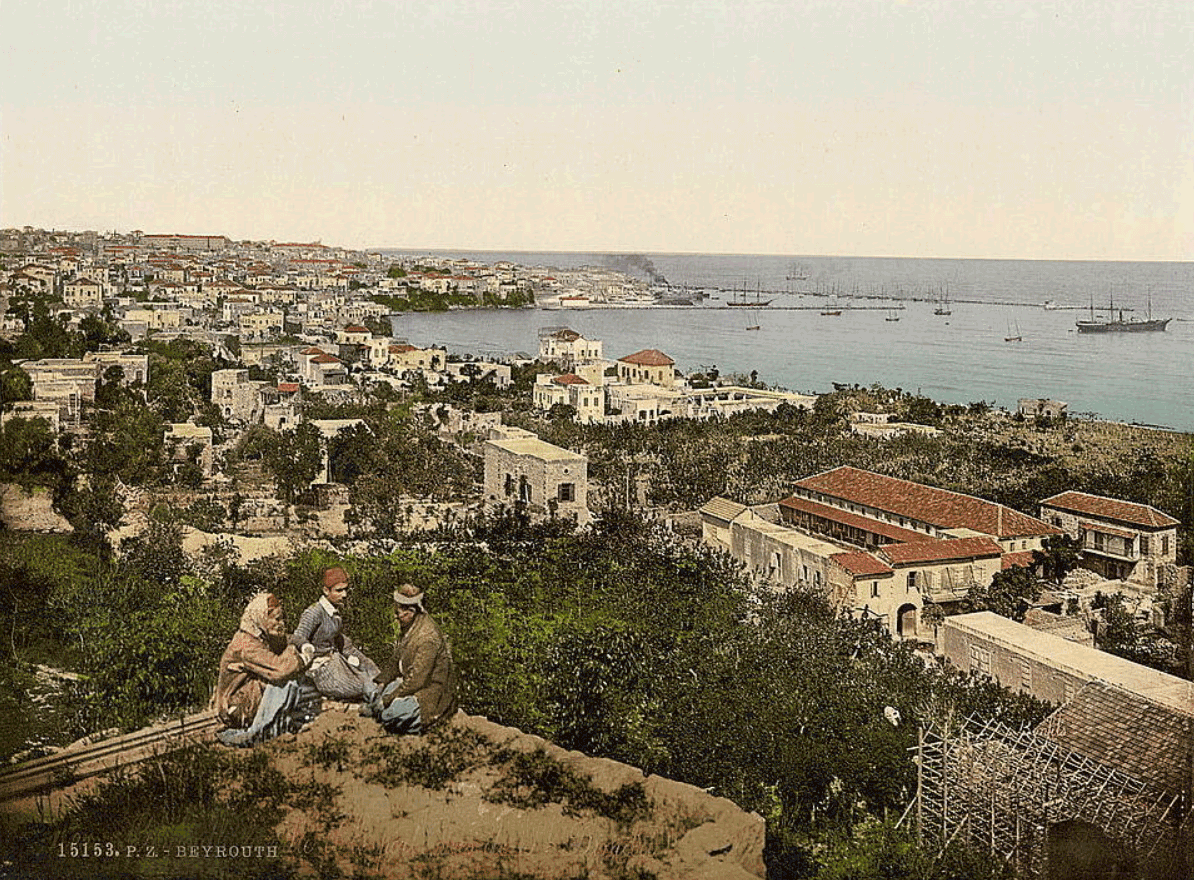
Beirut in the 1890s. Old Beirut Blog (website closed). Accessed 2021/01/09.
'Abdu'l-Bahá was right to be concerned about Shoghi Effendi’s welfare.
The forced separation from 'Abdu'l-Bahá hit him very hard.
Shoghi Effendi became severely depressed and started falling ill and losing weight, and it would take him a long time to recover.
Eventually Shoghi Effendi returned to Beirut where he was a Senior at the Syrian Protestant high school, but he was unhappy, and would stay overnight with Bahá'í students on weekends.
Luckily for Shoghi Effendi, once the school year was over, he was reunited with 'Abdu'l-Bahá.
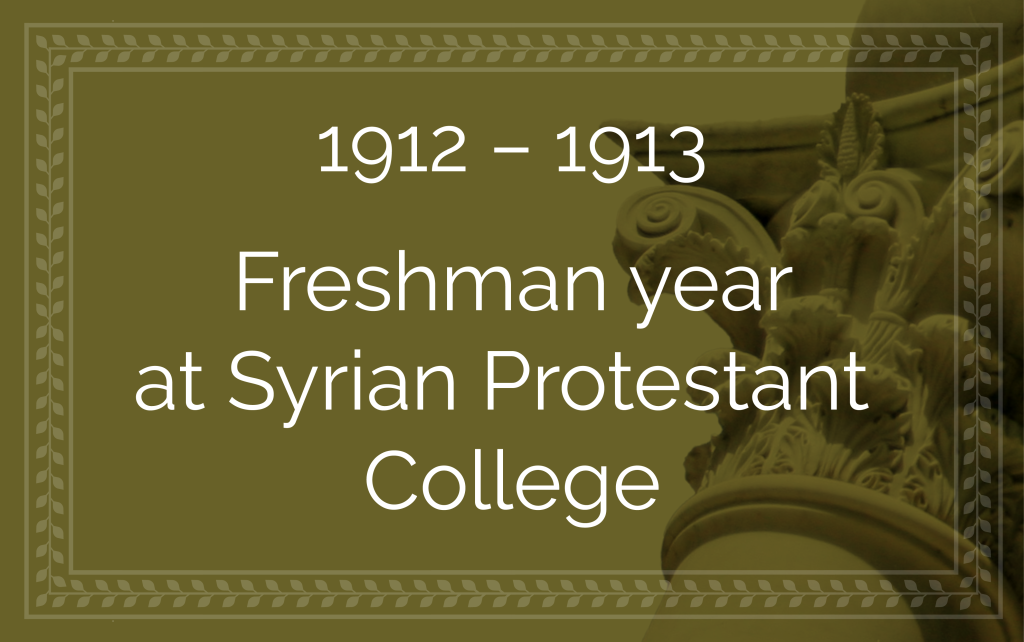
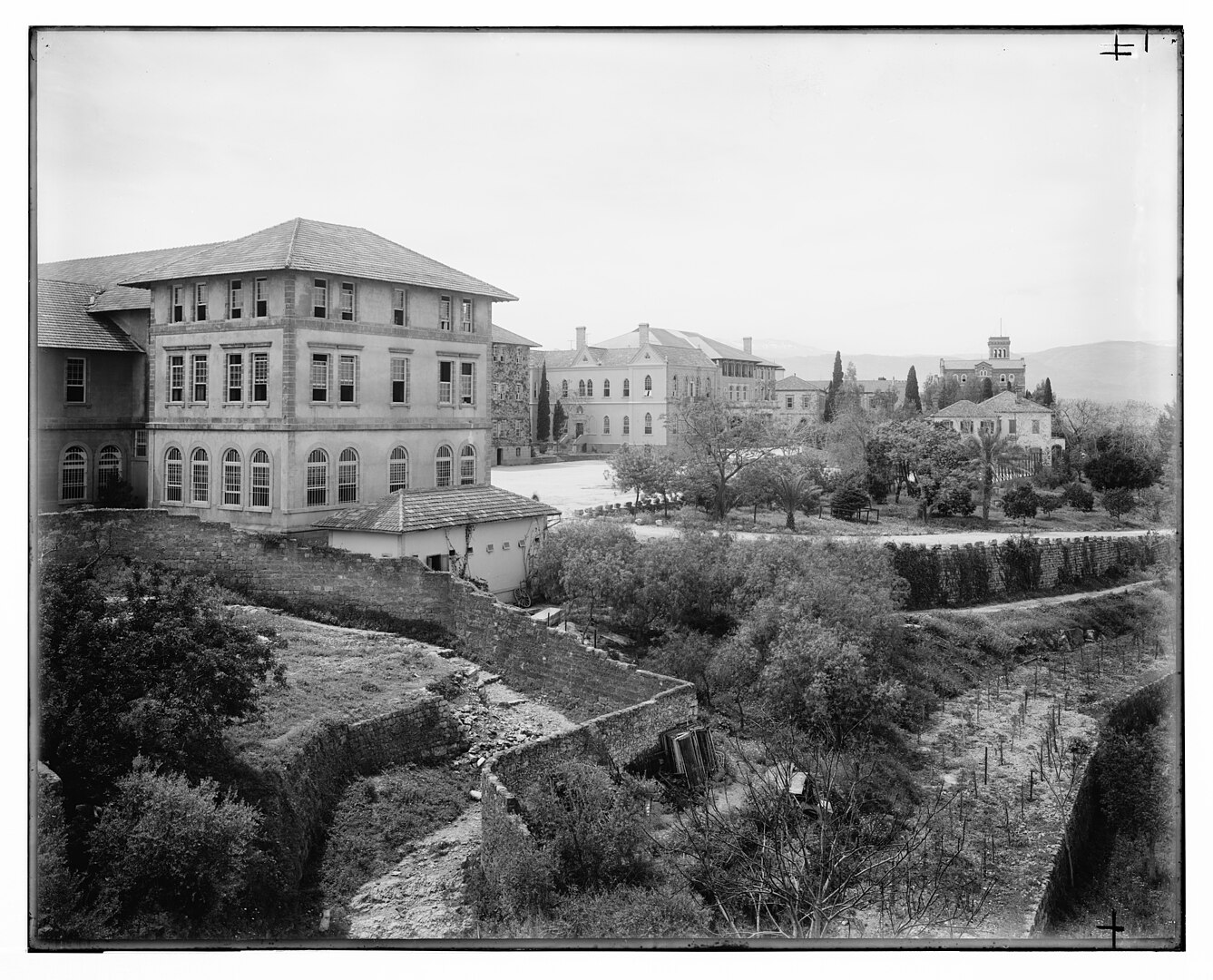
What Shoghi Effendi’s university—Syrian Protestant College—looked like between 1898 and 1914. Syrian Protestant College was renamed American University in Beirut in 1920. Source: Wikimedia Commons.
In October 1912, Shoghi Effendi traveled to Beirut, Lebanon, to begin his Bachelor of Arts at the Syrian Protestant College.
His only aim, focus and interest was how to be of service to 'Abdu'l-Bahá.
Syrian Protestant College was the best university in the Middle-East. It was founded by Dr. Danie Bliss, an American missionary in 1863, the year of Bahá'u'lláh’s Declaration, as a college of higher learning and medical. Training. Dr. Bliss’ son, Howard Bliss, his son, was the president of Syrian Protestant College while Shoghi Effendi attended. In 1920, Syrian Protestant College was renamed the American University of Beirut.
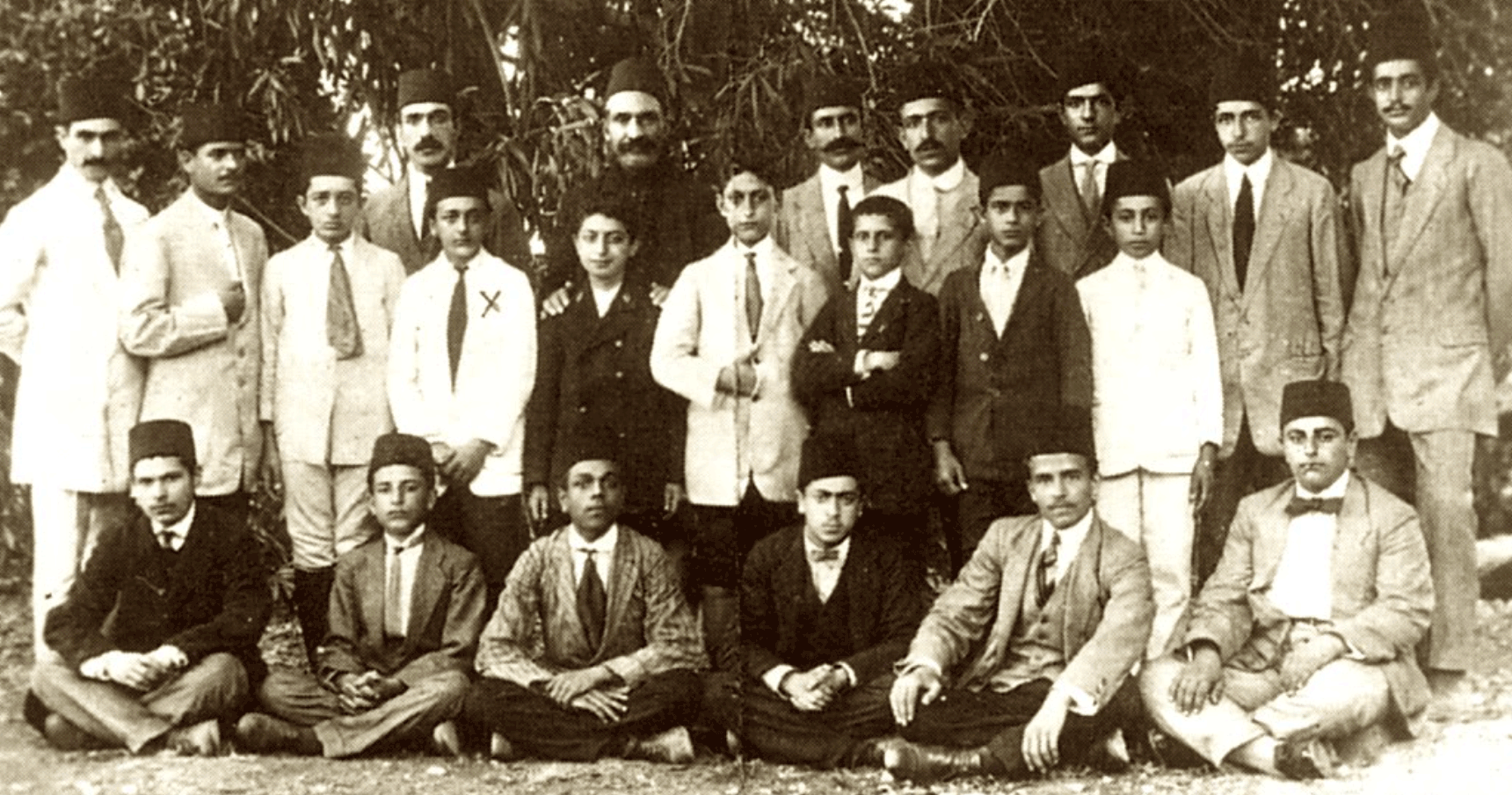
Shoghi Effendi with his classmates at Syrian Protestant College in 1913. Shoghi Effendi is indicated with an X on his white jacket. Source: Worldwide Community of Bahá'u'lláh.
In his Freshman year, Shoghi Effendi studied English, Arabic, French, History, Geometry, the Bible, and Biology, and participated in a declamation competition in four languages, and which he won first place for in French.
Shoghi Effendi also played a very active role in the activities of the Bahá'í students studying in Beirut. He became secretary of the Student Union and played a small role in Shakespeare’s The Tragedy of Julius Caesar performed at the West Hall auditorium.
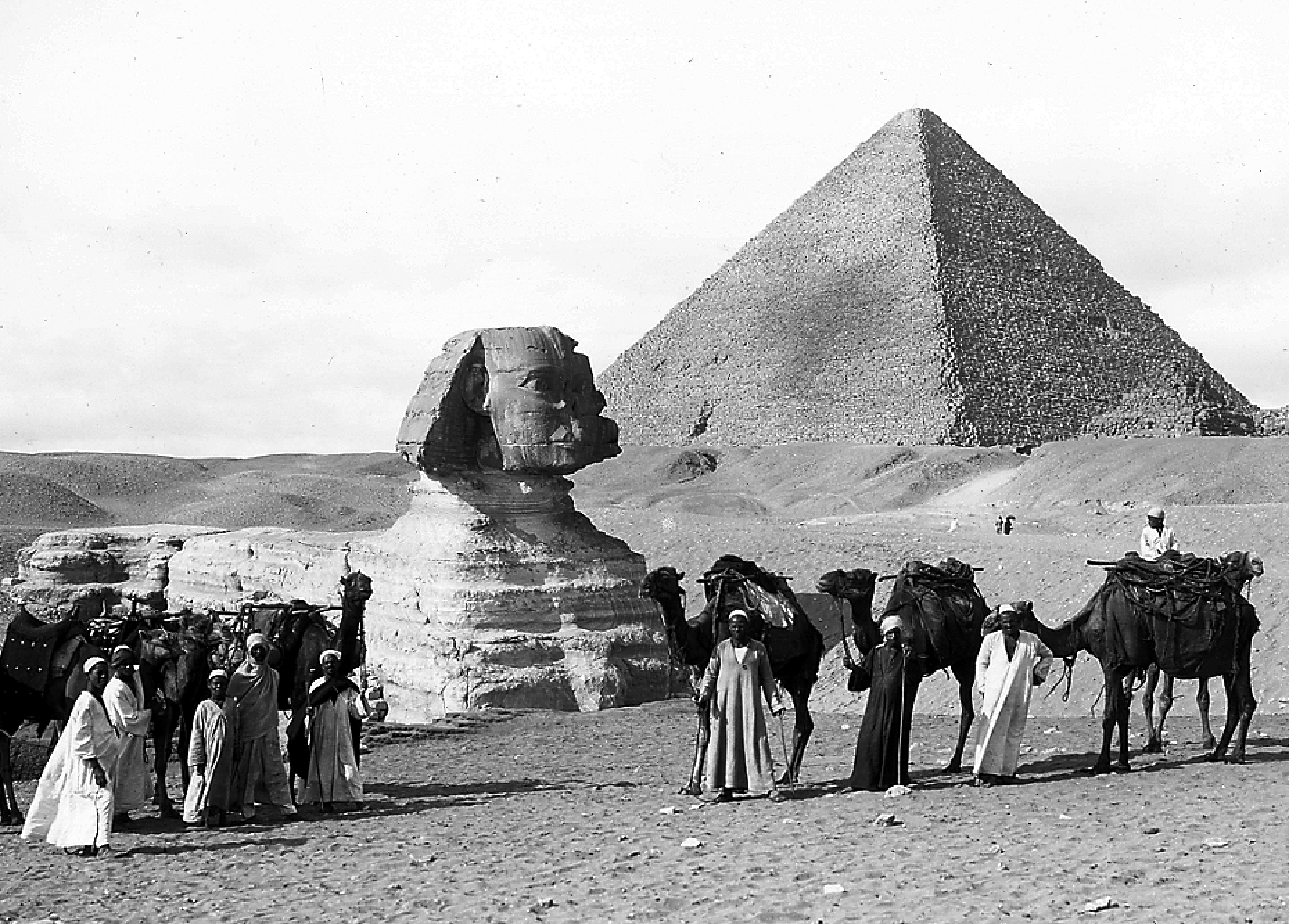
A side view of the Sphinx and the Great Pyramid of Cheops from the southeast in Gizeh (Giza), Egypt, in 1913, the year Rúḥíyyih Khánum presumes Shoghi Effendi visited the archeological wonder.Source: New York State Archives, New York (State). Education Dept. Division of Visual Instruction.
In August 1913m, before his Freshman year at Syrian Protestant College, Shoghi Effendi traveled to Ramleh with the Greatest Holy Leaf and some members of the Holy Family.
Shoghi Effendi occupied his time in Egypt with his beloved Grandfather in many different ways. 'Abdu'l-Bahá would often have Shoghi Effendi chant for Him in order to teach him how to control his voice to render various emotional expressions by modulating his voice, thereby making his chant more effective and beautiful.
Shoghi Effendi, now an intensely active and highly capable young man, found every opportunity to make himself useful to his Grandfather, and no task was ever too small. He joyfully rendered the smallest of services, such as fetching 'Abdu'l-Bahá a bottle of Evian water, if He needed it, but he also rendered great services such as taking down letters to the Persian believers which 'Abdu'l-Bahá would dictate while sitting or pacing in the garden of His villa.
Shoghi Effendi waited on 'Abdu'l-Bahá, ran errands for his Grandfather, sometimes meeting visitors on His behalf at the train station, as he did with Isabel Fraser on September 18. Shoghi Effendi also gave tours of Alexandria to visiting Bahá'ís at 'Abdu'l-Bahá's request, showing them the zoo or the famous park.
Shoghi Effendi even visited Cairo during his 1913 stay, and Rúḥíyyih Khánum ventured to guess that:
[Shoghi Effendi] lost no time in visiting the pyramids, for Shoghi Effendi had an adventurous spirit and longed to visit distant places, as witnessed by the keen interest it is recorded he showed in some "Travel" magazines sent from America.
In Ramleh, Shoghi Effendi reconnected with ‘Alí Yazdí, his old friend. After several weeks in 'Abdu'l-Bahá's company, the Holy Family returned to the Holy Land and Shoghi Effendi was on his way to begin his university studies.
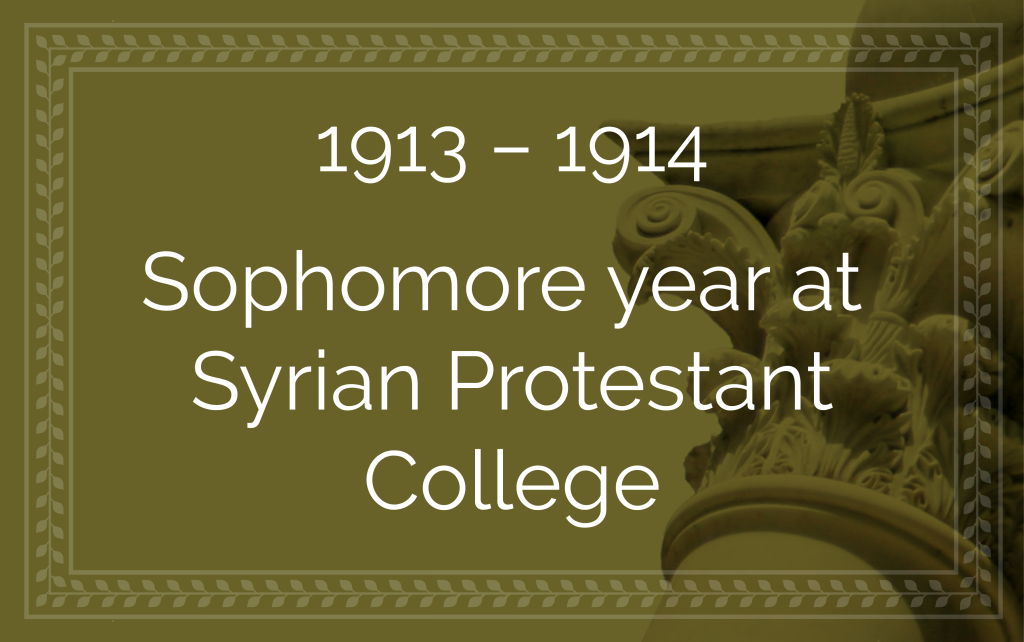
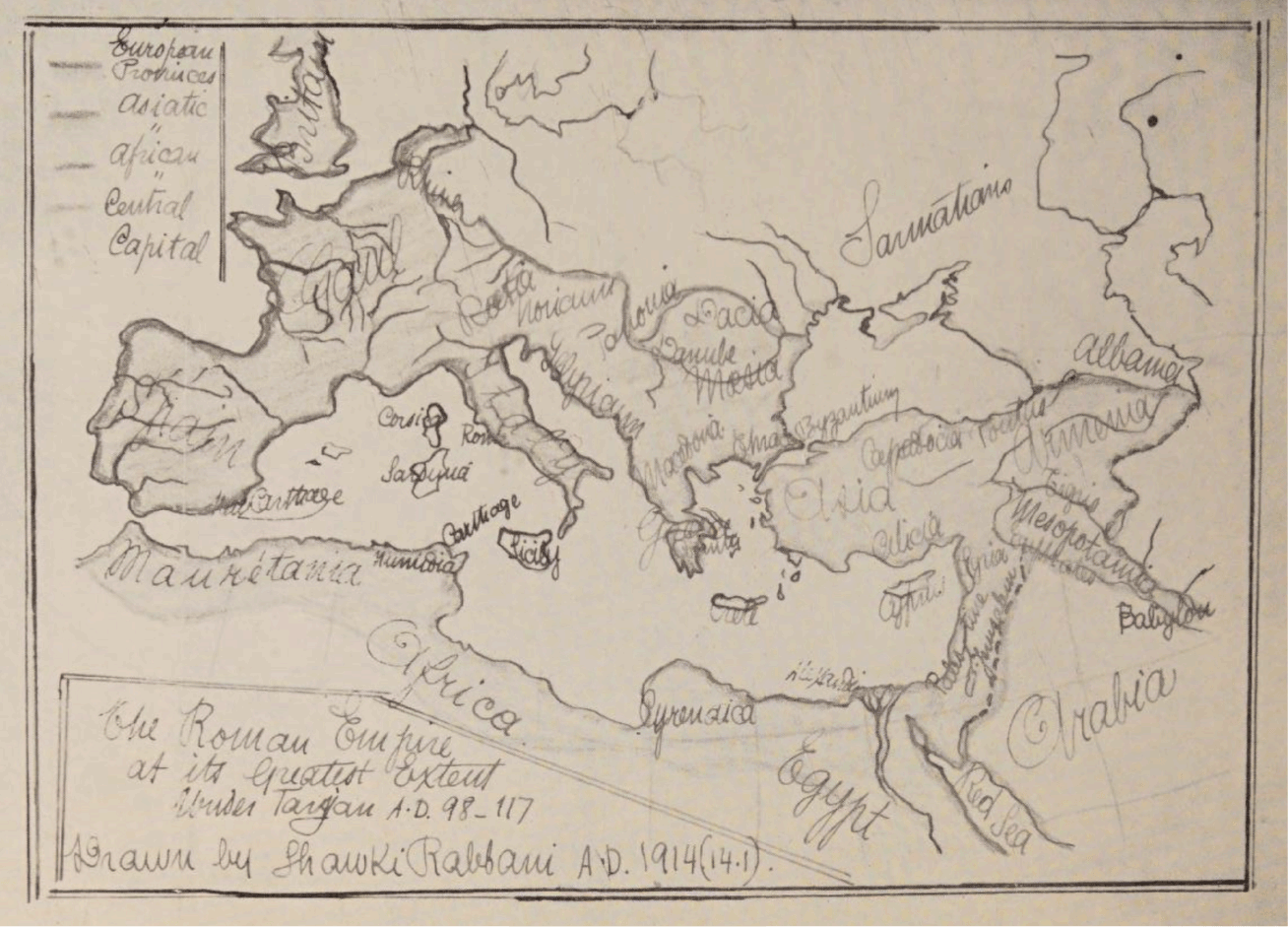
Map of the Roman Empire—in lieu of the map of the United States of America mentioned in the story below—drawn by Shoghi Effendi in 1914 (which he specifies as “1914 A.D.”). Notice the beautiful cursive calligraphy, the map legend, and the carefully-drawn double border. Source: The Priceless Pearl, between pages 104 and 105.
Shoghi Effendi’s character was well-established by the time he was 17 years old, as we see here in a letter he wrote from Beirut in which he firmly reprimands one of 'Abdu'l-Bahá’s secretaries for not keeping him apprised of news in the Holy Land:
A long time elapsed during which I have had neither any news from Haifa nor a word from you. Indeed I never expected this. I hope that the rarity of correspondence will be changed to numerous letters full of glad-tidings of the Holy Land.
After this, Shoghi Effendi goes on to say that he hopes "Our Lord and Master is in perfect health."
Shoghi Effendi, although he was in Beirut, was following the talks and the thoughts of 'Abdu'l-Bahá very closely, and asks that all talks and references made by the Master, regarding the question of a Supreme Tribunal be sent to him before 20 March 1914.
There is a fascinating excerpt of this letter, which shows that Shoghi Effendi’s lifelong love of maps was already alive and busy at such a young age:
I have pretty near finished the map of the United States of America. It is a very picturesque and beautiful map. Please send me the list of the cities of the United States visited by our Lord in order one after the other. I will be then able to locate them in the map.
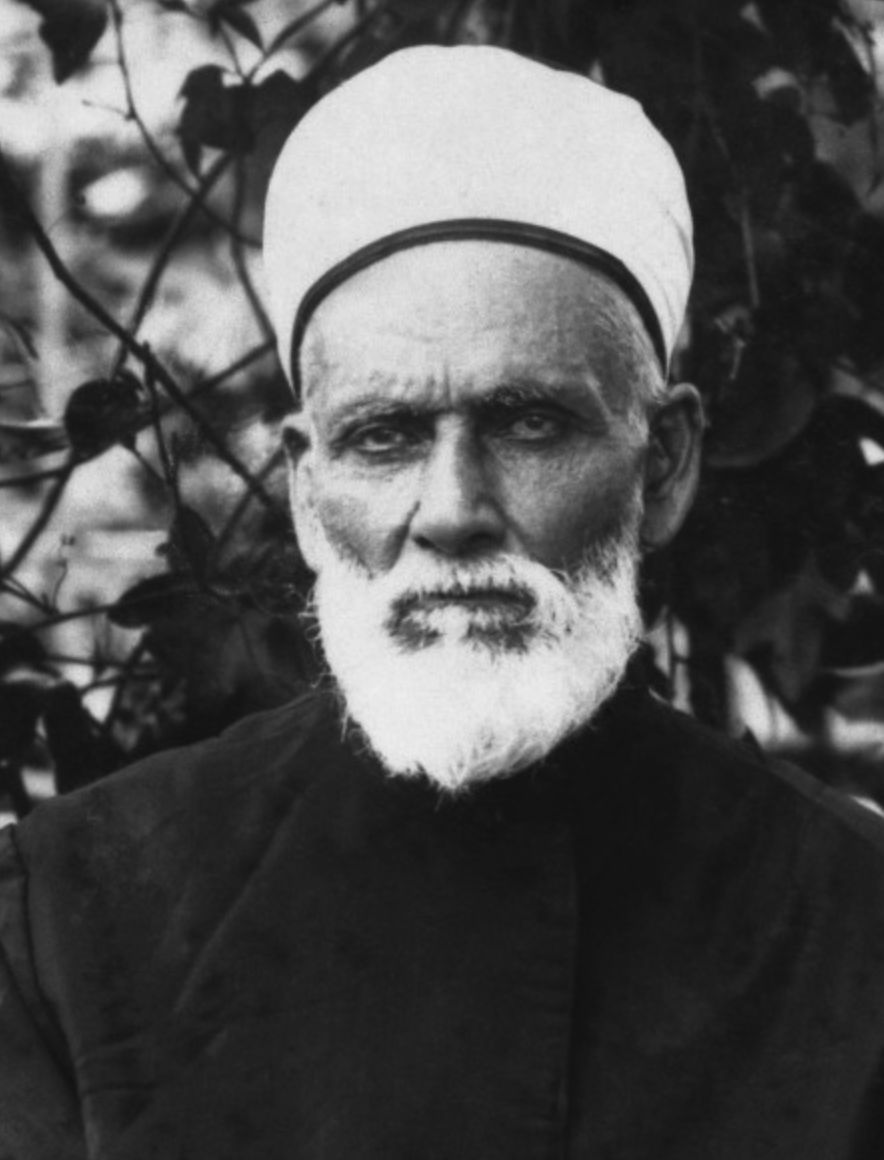
Siyyid Muṣṭafá Rúmí, a steadfast and active Bahá'í in Burma—now Myanmar—to whom Shoghi Effendi writes a letter on 28 July 1914. Source: Bahaipedia.
Again from a very young age, Shoghi Effendi developed a lifelong habit which he would continue as Guardian, and that was to actively and regularly writing to Bahá'í friends throughout the world.
When Shoghi Effendi was in Haifa, he wrote a letter dated 28 July 1914 to Siyyid Muṣṭafá Rúmí in Burma, which reads as though he is an adult, and not a 17-year-old college student. The letter displays maturity, long-term thinking, the ability to encourage, an understanding of the growth of the Faith, and a sensitivity far beyond his years.
Shoghi Effendi tells Siyyid Muṣṭafá Rúmí—whom he would later, as Guardian, posthumously appoint as a Hand of the Cause— that he is very pleased with the "glad-tidings of the rapid progress of the Cause in the Far East," and informs him that he shared his letter with 'Abdu'l-Bahá.
After reading the letter to the Master, Shoghi Effendi continues the letter:
A Holy tender smile ran over his radiant Face and his heart overflowed with joy. I then came to know that the Master is in good health for I recollected his sayings which I quote now: “Whenever and wherever I hear the glad tidings of the Cause my physical health is bettered and ameliorated.” I therefore tell you that the Master is feeling very well and is happy.
Convey this happy news to the Indian believers. I do hope that this will double their courage, their firmness, and their zeal in spreading the Cause.
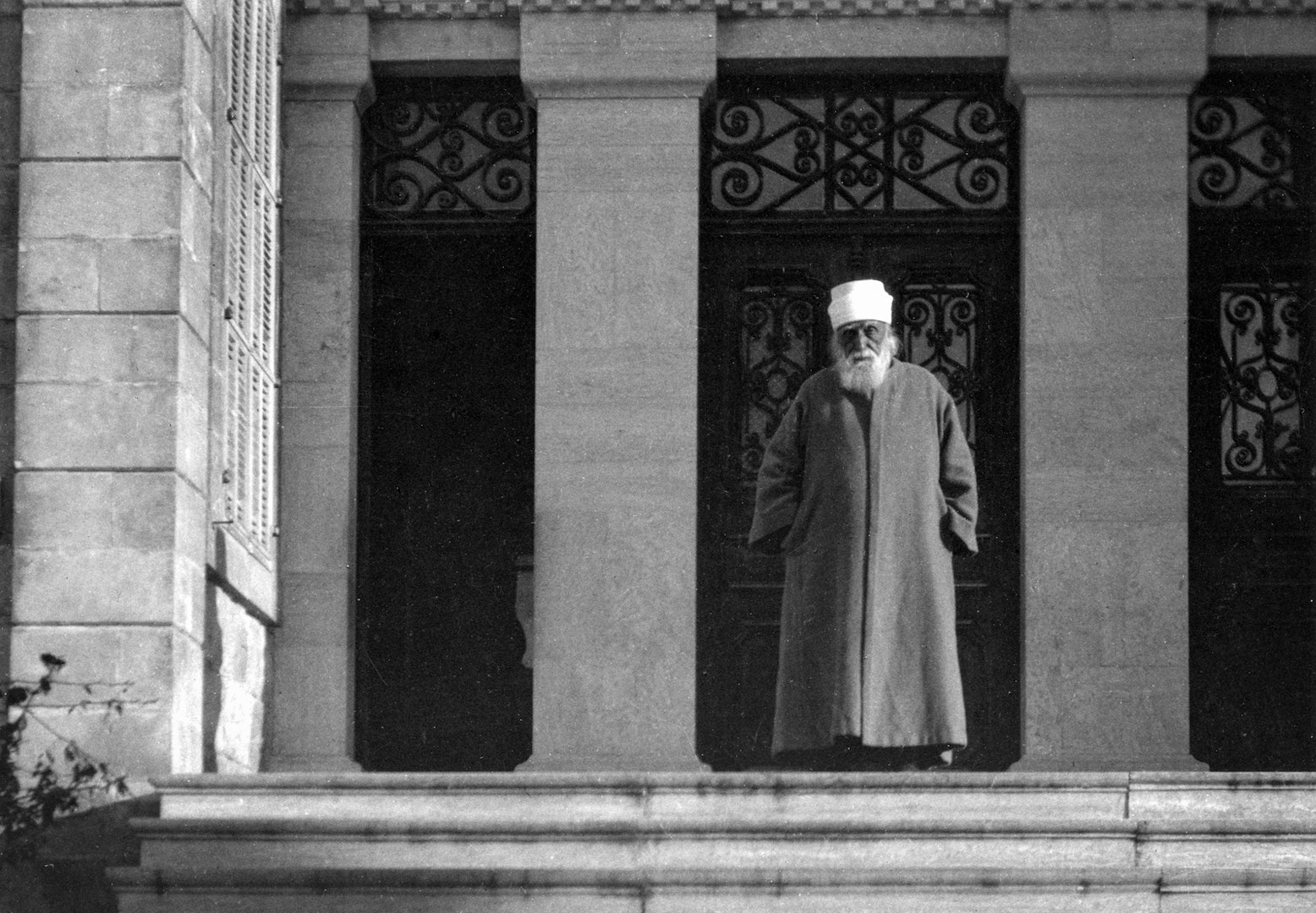
'Abdu'l-Bahá on the steps of His home at 7 Haparsim Street, the place Shoghi Effendi returns to for every holiday while he is at university at Syrian Protestant College. Source: Bahá'í Media Bank, © Bahá'í International Community 2023.
Shoghi Effendi returned to Haifa after completing his first year of college at Syrian Protestant College just as war was breaking out in Europe.
After his boyhood, when he was a teenager studying in Beirut and before leaving for Oxford, Shoghi Effendi always wore a small, trim, dark mustache, which he would keep for the rest of his life.
Before he left for England, he wore long robes with a sash and a red fez pushed back on his head, his soft brown hair showing.
Once 'Abdu'l-Bahá had moved into his house in Haifa at 7 Haparsim, Shoghi Effendi’s room was a small one right next to 'Abdu'l-Bahá’s.
Here are three short vignettes of 'Abdu'l-Bahá and His grandson in Haifa. Three short stories of 'Abdu'l-Bahá loving, appreciating, caring and also training His grandson, an intimacy He would not be able to show outside the safe walls of His home.
There would be no electricity in the house until after 'Abdu'l-Bahá’s Ascension, and when 'Abdu'l-Bahá saw the lamp in Shoghi Effendi’s room burning late into the night, he would rise from His bed, go to Shoghi Effendi’s room and say:
Enough! Enough! Go to sleep!
At the same time as 'Abdu'l-Bahá was worried about Shoghi Effendi getting enough rest, He was deeply pleased by Shoghi Effendi’s serious and hard-working, dedicated nature.
Once 'Abdu'l-Bahá came into the drawing room of His house, where Shoghi Effendi was working, and He stood, His back to Shoghi Effendi, looking out of the window into the garden.
Somewhere in the house, His family was talking and laughing, and 'Abdu'l-Bahá told Shoghi Effendi:
I do not want you to be like them - worldly.
Once, 'Abdu'l-Bahá was seated with His wife, Munírih Khánum, and Shoghi Effendi and He turned to His wife and said:
Look at his eyes, they are like clear water.
On another occasion, 'Abdu'l-Bahá watched Shoghi Effendi hurriedly enter the Master’s house from one of the windows that faced the main gate. After Shoghi Effendi had entered the house, 'Abdu'l-Bahá called for him and told him:
Don't walk like that, walk with dignity!
Shoghi Effendi never had enough time with 'Abdu'l-Bahá, who was taken from him too soon, but 'Abdu'l-Bahá instilled in Shoghi Effendi traits that would last him his entire lifetime.
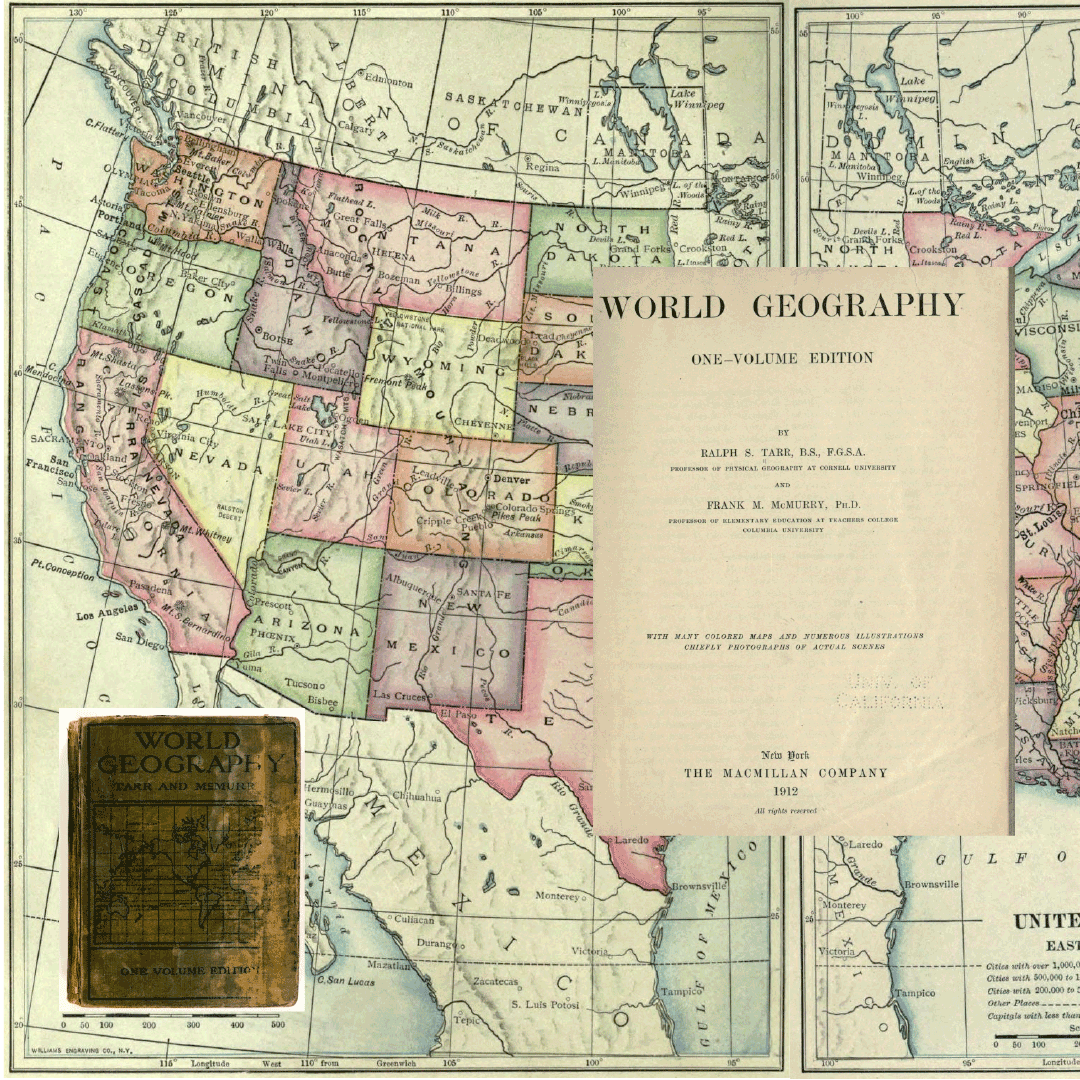
Beautiful large colored map of the states of the United States and front page of the book from the original scanned volume on Internet Archive. Source: World Geography: One-volume edition by Ralph Stockman Tarr, and Frank Morton McMurry (1912). The two very small images of the cover of 'Abdu'l-Bahá’s Own Geography Book and and an excerpt of a map from the book owned by the Master are both very low resolution and are © of the United States National Bahá'í Archives. Source: Tablets of the. Divine Plan Blog by Brent Poirier” 'Geography Book used for the Tablets of the Divine Plan.
One summer after 1912 and before 1916, when 'Abdu'l-Bahá revealed the Tablets of the Divine Plan, Bahá'í students from Syrian Protestant College came to spend the summer in Haifa. One of the students brought a geography book. The geography book in question was World Geography: One-volume edition by Ralph Stockman Tarr, and Frank Morton McMurry, which was published in 1912, and so would have contained the most accurate geographical data available at the time.
'Abdu'l-Bahá looked at the geography book and asked the student if He could keep it, and the student happily said yes. When 'Abdu'l-Bahá revealed the Tablets of the Divine Plan in the springs of 1916 and 1917, He based his list of regions of the United States and of countries in the world on the contents of this book.
'Abdu'l-Bahá’s copy of Tarr and McMurray’s World Geography is now in the United States National Bahá'í Archives.
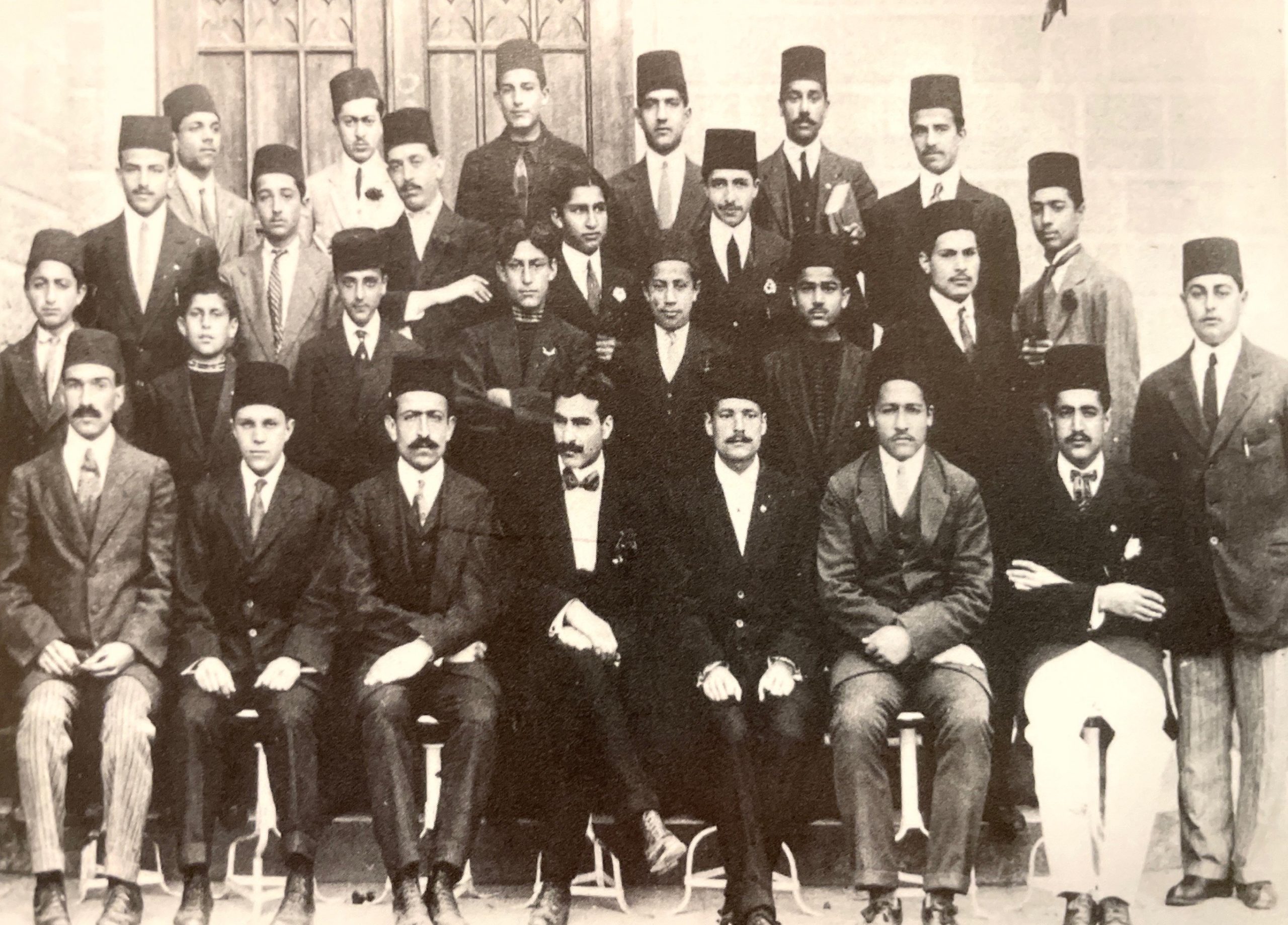
Shoghi Effendi returned to Beirut from Haifa in October 1914 to take up his sophomore year of university at the Syrian Protestant College, but things were very, very different. World War I had erupted in August 1914, while Shoghi Effendi was on summer break in Haifa with 'Abdu'l-Bahá, and by October 1914, it had spread to Turkey. Over 100 of Shoghi Effendi’s fellow students simply had not enrolled for that academic year, and so Syrian Protestant College lost 15% of its students, but Shoghi Effendi was calm and serene, and resolved to continue his studies.
In his sophomore year, Shoghi Effendi studied English, Arabic, French, History, Trigonometry, Physics and the Bible, Analytical Geometry, Elementary Mathematical Analysis and Biology.
That year, he again won the declamation contest for French.
‘Alí Yazdí, Shoghi Effendi’s good friend from Ramleh, was also at Syrian Protestant College, and lived in the same dorm. He described Shoghi Effendi in college as always happy, joyful and optimistic, talkative and passionate about two things: the spread of the Faith and everyone serving the Faith.
Because of the naval blockade which restricted movement on the Mediterranean Sea, a lot of Shoghi Effendi’s friends could not return home for the summer, so they came back to Haifa with him and were lodged in the anteroom of the Shrine of the Báb.
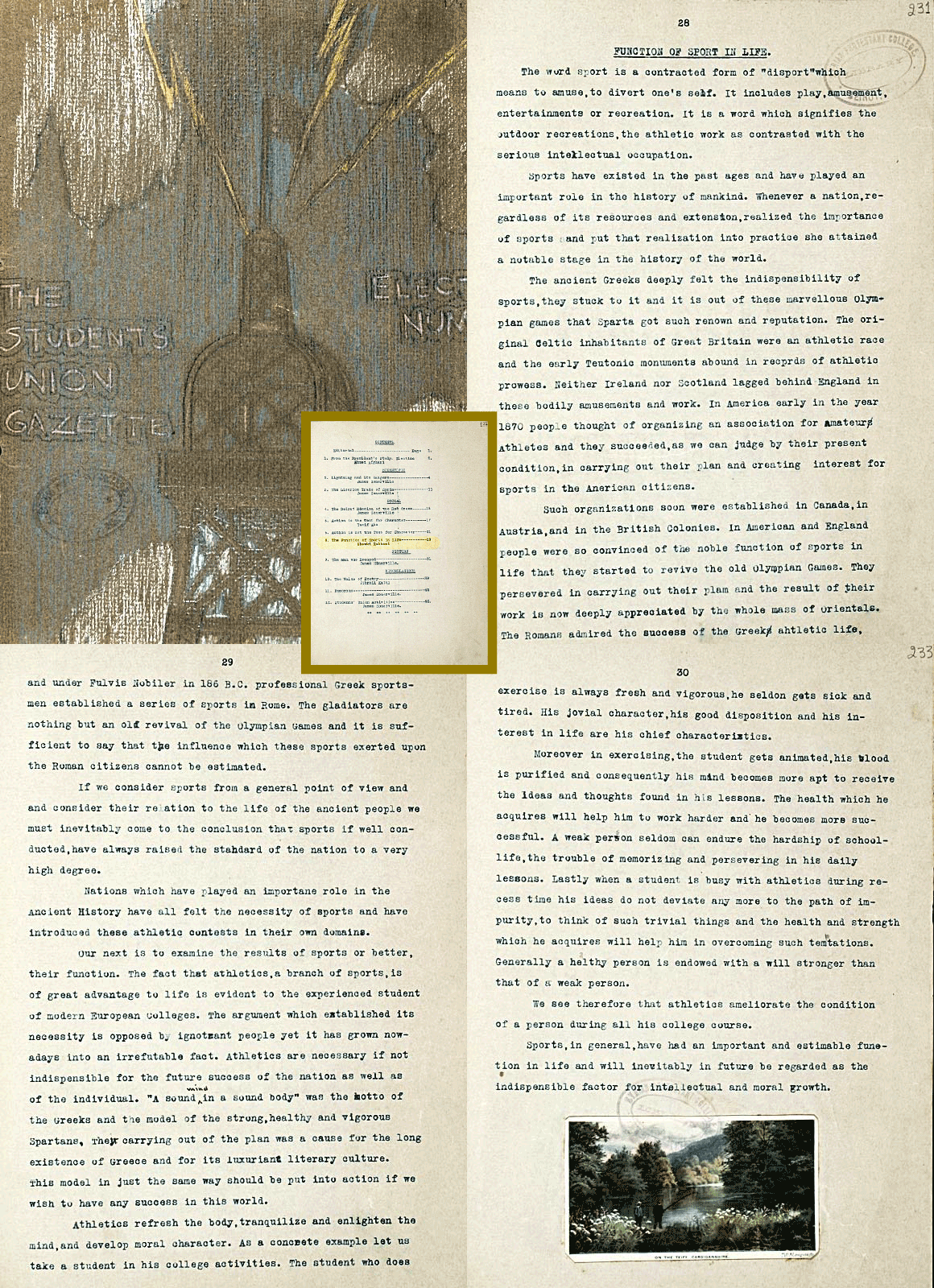
Images from the article published by Shoghi Effendi in the Students' Union Gazette, student magazine of Syrian Protestant College in 1914/1915, on pages 28-30 “The Function of Sports in Life.” This collage shows the cover of the magazine, and a small scan of the Table of Contents for the issue which lists the article by “Shawki Rabbani”, as well as the three pages of the article and the postcard included by Shoghi Effendi at the end of his article. Source: Bahá'í Library Online.
In his sophomore year at the Syrian Protestant College, Shoghi Effendi published an article titled The Function of Sports in Life.
In this lovely essay, at the end of which Shoghi Effendi includes a perfectly charming postcard of two men fishing by a lake, he not only provides the etymology of the word sport, but he traces the history of physical activity through human civilization, from the Ancient Greeks to the Celts and Teutons, and the British Colonies.
Shoghi Effendi also argues for the importance of physical exercise and its benefits to the body, mind, and soul, bring forth argument after argument, and concluding that it is absolutely essential for both intellectual and moral growth.
This is how Shoghi Effendi begins his article:
The word sport is a contracted form of "disport" which means to amuse, to divert one's self. It includes play, amusement, entertainments or recreation. It is a word which signifies the outdoor recreations, the athletic work as contrasted with the serious intellectual occupation.
Sports have existed in the past ages and have played an important role in the history of mankind. Whenever a nation, regardless of its resources and extension, realized the importance of sports and put that realization into practice she attained a notable stage in the history of the world.
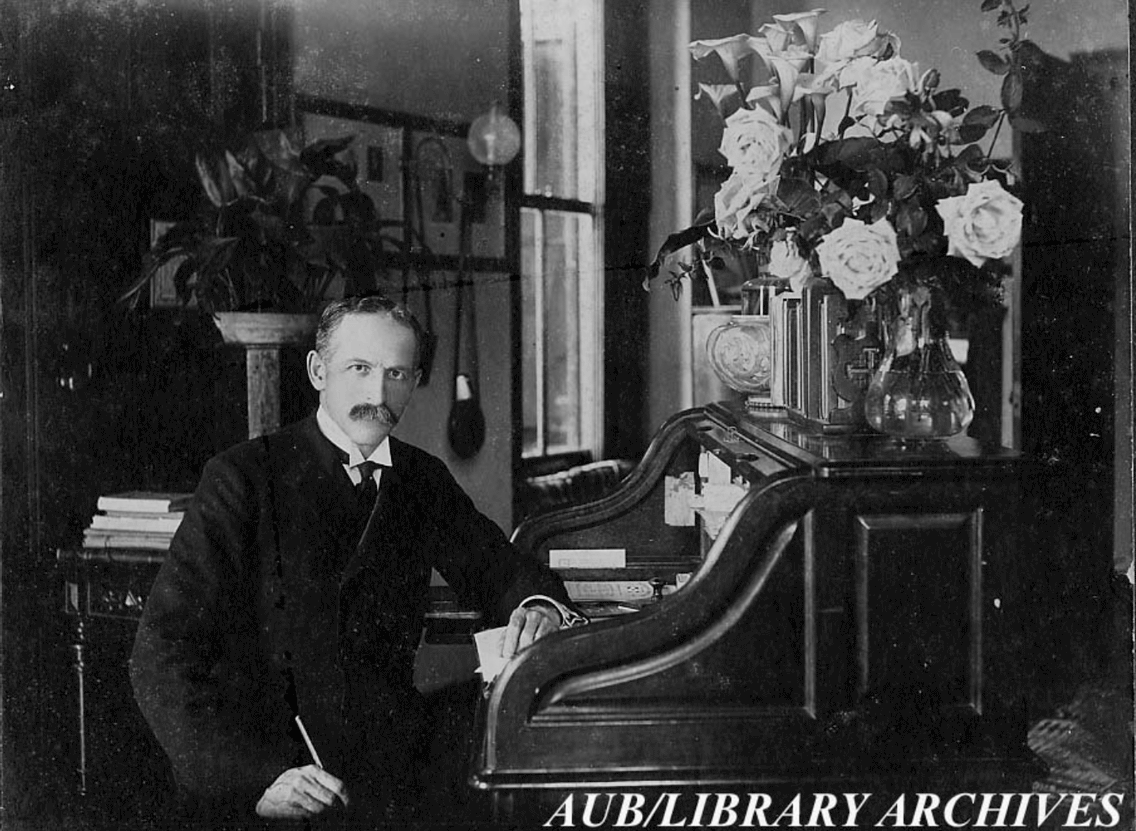
Howard Bliss, President of Syrian Protestant College at the time Shoghi Effendi was a student there, and to whom 'Abdu'l-Bahá addressed a Tablet. Howard Bliss. Credit: “Howard Bliss Photo Collection,” AUB Libraries Online Exhibits. Source: The Bahá'í World.
'Abdu'l-Bahá revealed an undated Tablet to Dr. Howard Bliss, the President of the Syrian Protestant College. This Tablet must have been sent between 1914 and 1917, because Bliss left for Paris at that time. Dr. Bliss had a very good relationship with Jamál Pashá, which was frowned upon by many people in Beirut, but it kept Syrian Protestant College safe during the war.
In His Tablet to Dr. Bliss, 'Abdu'l-Bahá thanks him for his letter and offer of friendship, and mentions how highly Shoghi Effendi and the other Persian students regarded him, offering His prayers for his worthy service:
Beirut, the honored Dr. Bliss, the President of the American school.
O esteemed and loved friend! Thy letter arrived, and since its essence testified to thy affection, fidelity and constancy in our spiritual connection, it sweetened my taste like heavenly honey and brought immense joy. I cherish the hope that this friendship may remain firm forever.
Shoghi Effendi and other Iranian students are greatly pleased with all of you and even have spoken your praise to all the visitors traveling from Iran to Haifa, who in turn have taken this news back to Iran. They have widely spread that the illustrious President is exceedingly compassionate and exerts great efforts towards the advancement of students.
I pray that you excel in service to the world of humanity and become peerless in the training and education of youth.
Upon you rest praise and salutations.
‘Abdu’l-Bahá ‘Abbás.
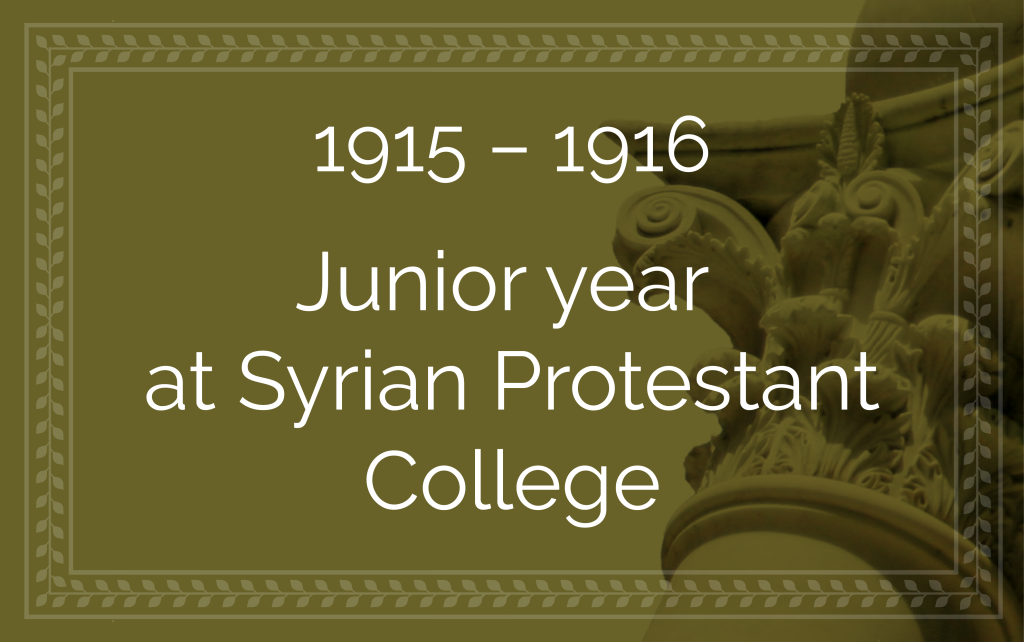
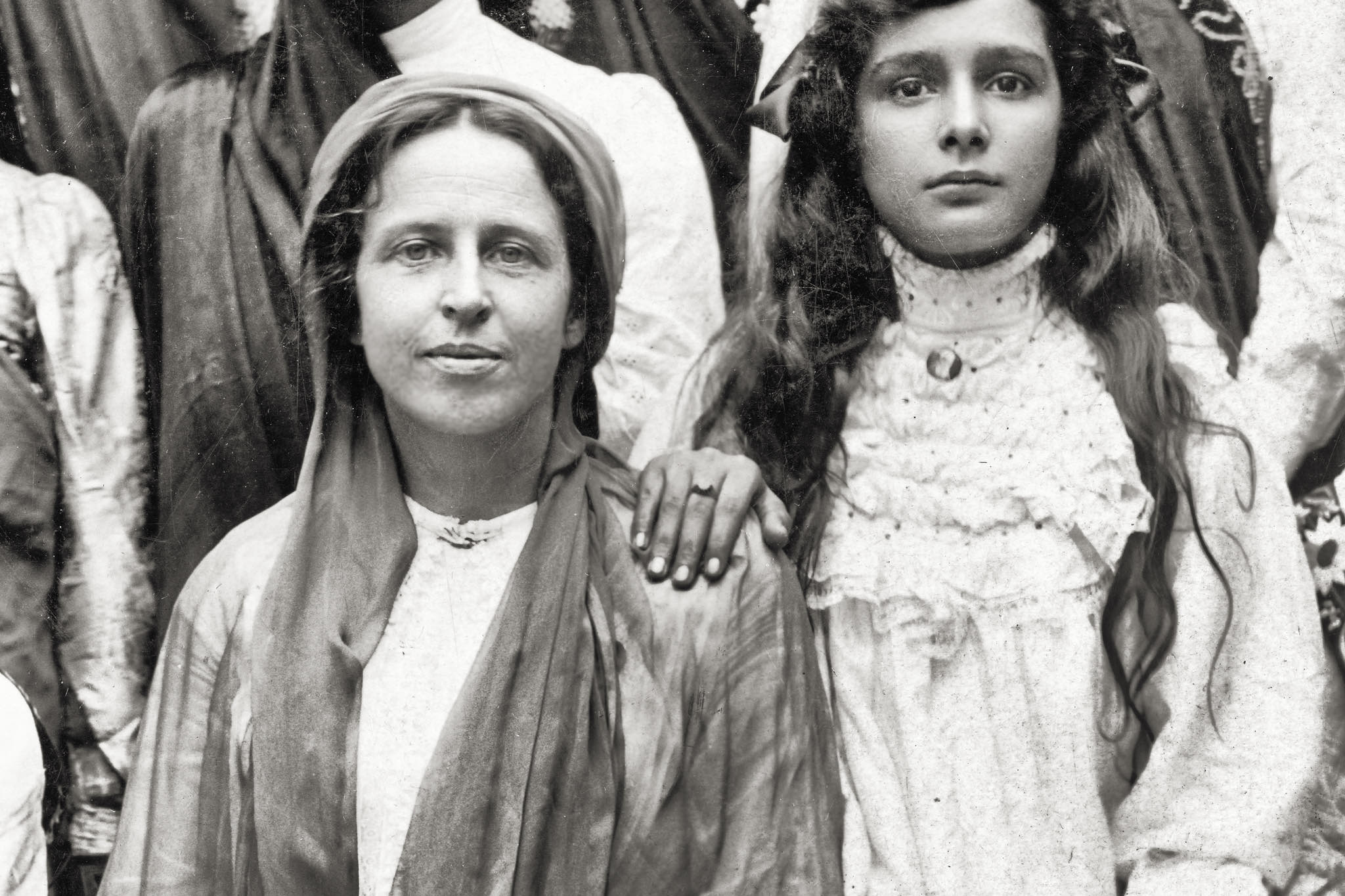
Lua Getsinger in India. Source: 239 Days in America.
Lua Getsinger left India—where she had been sent by 'Abdu'l-Bahá in 1913 on a productive teaching trip on 17 November 1914—and arrived Haifa during a time of great turbulence. In the months preceding, Haifa had been under constant threat of bombardment, which at times felt imminent. The war panic spreading through Haifa and 'Akká had affected the Bahá'ís and especially the children who were terrified by the stories they were hearing.
About eight kilometers northeast of Bahjí was a Druze village called Abú-Sinán. The village chief, Shaykh Ṣáliḥ, extended ‘Abdu’l-Bahá an invitation to his village putting his own home at the Master's disposal.
By September, ‘Abdu'l-Bahá arranged for His family and about 140 Bahá'ís, and as many children to move from Haifa and 'Akká into Abú-Sinán, a much quieter place, away from the stresses and panic of Haifa and the coast. Shaykh Ṣáliḥ hosted the entire Holy Family, Edith Sanderson and Lua Getsinger, and the rest of the Bahá'ís were welcomed into the villager's homes.
During these months, 'Abdu'l-Bahá and Ḥájí Mírzá Ḥaydar-‘Alí who was too old and too ill to travel were the only two Bahá'ís left in Haifa. 'Abdu'l-Bahá moved between Haifa, 'Akká and Bahjí.
At ‘Abdu'l-Bahá's request, both a small school and a dispensary were established in the village, and Lua Getsinger helped Dr. Habíb Mú’ayyad in the dispensary. When things in Palestine got too dangerous, Edith Sanderson left the Holy Land in January 1915, and seven months later, Lua was forced to leave as well.
'Abdu'l-Bahá revealed a Tablet to serve as a letter of introduction to her praising her work in India and asking she be extended every respect and courtesy, and calling her “firm in the Covenant,” dated 27 August 1915:
To the beloved of God in America--on them be glory and bounty! The maid-servant of God, Lua, was a long time occupied in India in spreading the fragrances of the love of God. She is now ready to return to the regions of America. Show her every consideration. She is firm in the Covenant of love. In reality she worked vigorously during her sojourn in India, and she is worthy of love.
On 30 August 1915, Shoghi Effendi and several other Bahá'ís accompanied Lua Getsinger to her American steamer, the USS Des Moines, where she left Palestine along with 290 other evacuees. She arrived in Port Said, Egypt in mid-September 1915, after having boarded a small Greek vessel in Crete.
Lua Getsinger spent 8 months in Cairo before dying of heart failure, at the age of 43, on 2 May 1916, two years after her beloved teacher, Mírzá 'Abu'l-Faḍl. Lua Getsinger was buried next to Mírzá 'Abu'l-Faḍl.
'Abdu'l-Bahá did not hear of Lua’s passing until four months later due to interruptions of communications during the First Word War. 'Abdu'l-Bahá was in Tiberias, on the shores of His beloved Sea of Galilee, on an afternoon of September 1916, when he received the tragic news of Lua Getsinger’s unexpected passing. The Bahá'ís around 'Abdu'l-Bahá heard him say a hundred times or more, in a state of deep grief:
What a loss! What a loss! What a loss!
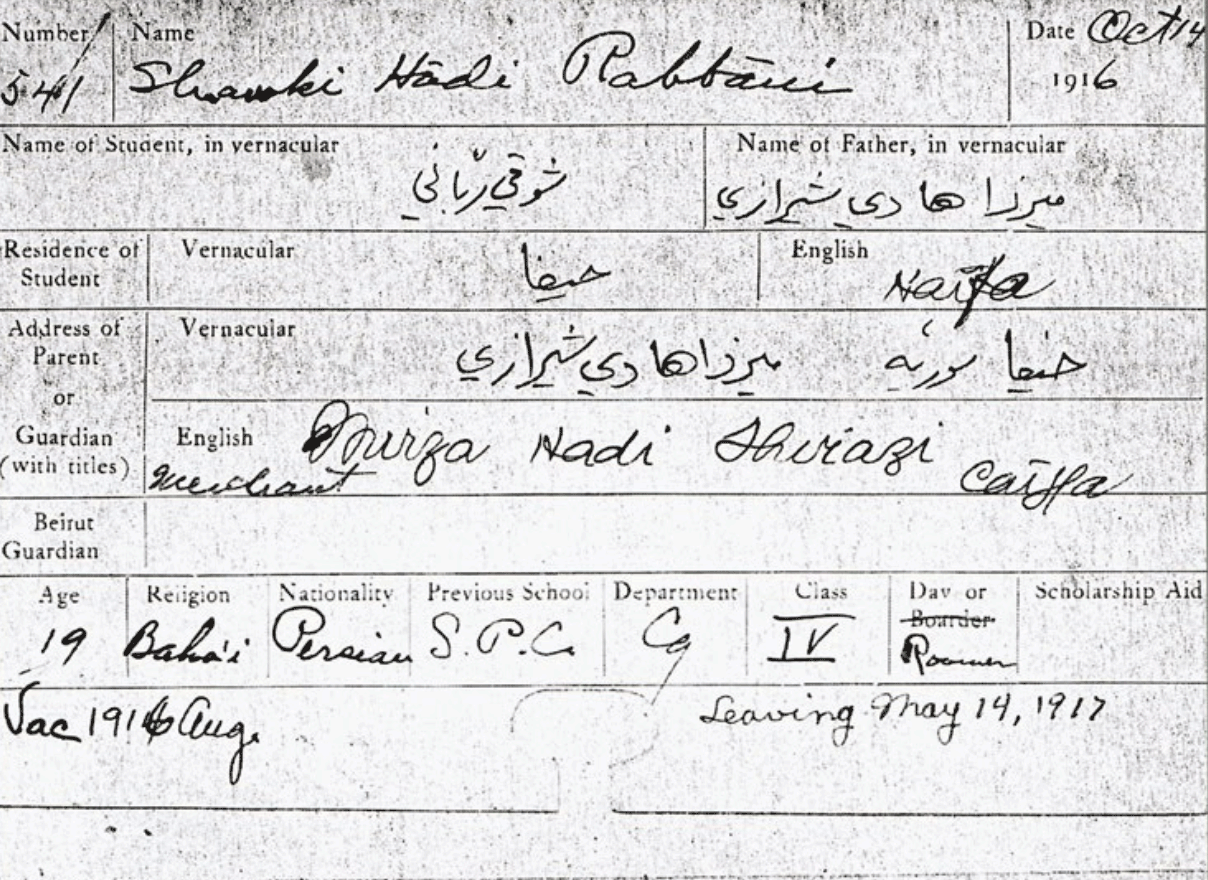
Shoghi Effendi’s junior year registration form dated 14 October 1916. Notice Shoghi Effendi still has not transliterated his first name in its final form, and still writes it “Shawki.” His father, Mírzá Hádí Shírází is listed as a merchant. Source: Bahá'í Sacred Relics.
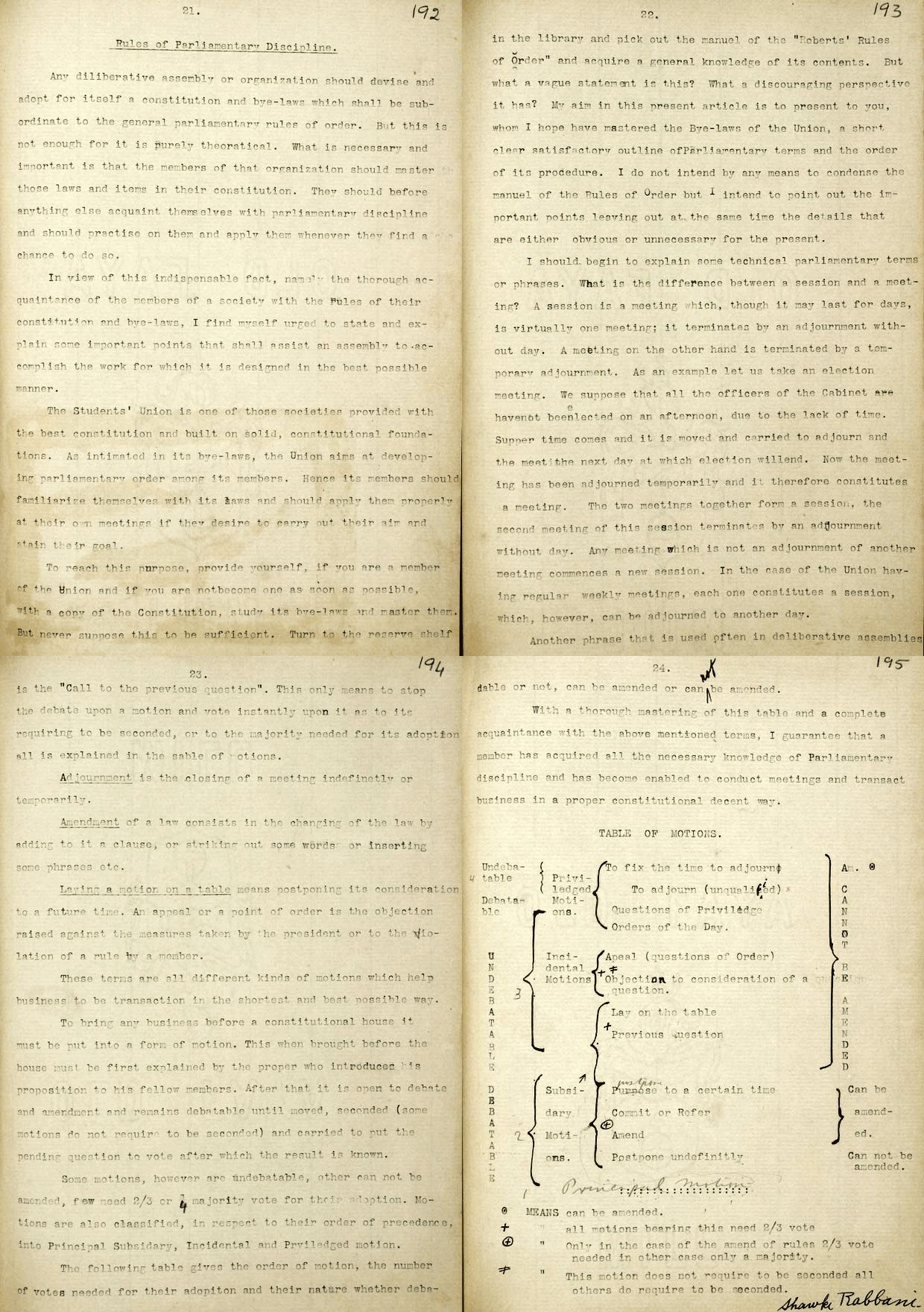
Shoghi Effendi’s article in the Syrian Protestant College’s Students’ Union Gazette, published in November 1915. Notice Shoghi Effendi’s signature at the bottom and his Table of Motions. Source: Bahá'í Library Online.
Shoghi Effendi returned to Syrian Protestant College for his junior year, and studied the same subjects as he did in sophomore year with the addition of Ethics, Zoology, Rhetoric, Logic, Economics and Physics.
In 1915, there were 35 Bahá'í students at Syrian Protestant College. During his junior year, Shoghi Effendi published an article titled Rules of Parliamentary Discipline.
In this paper, Shoghi Effendi praises the advantages of a constitution in organizing movements, including the Syrian Protestant College’s Student Union. He also encourages students to join the Student’s Union, explains technical parliamentary terms and phrases, giving clear, precise definitions of terms like adjournment and amendment, explains how motions are brought forth, and provides a very intricate Table of motions at the end of the essay.
Any deliberative assembly or organization should devise and adopt for itself a constitution and by-laws which shall be subordinate to the general parliamentary rules of order. But this is not enough, for it is purely theoretical. What is necessary and important is that the members of that organization should master those laws and items in their constitution. They should before anything else acquaint themselves with parliamentary discipline and should practice on them and apply them whenever they find a chance to do so.
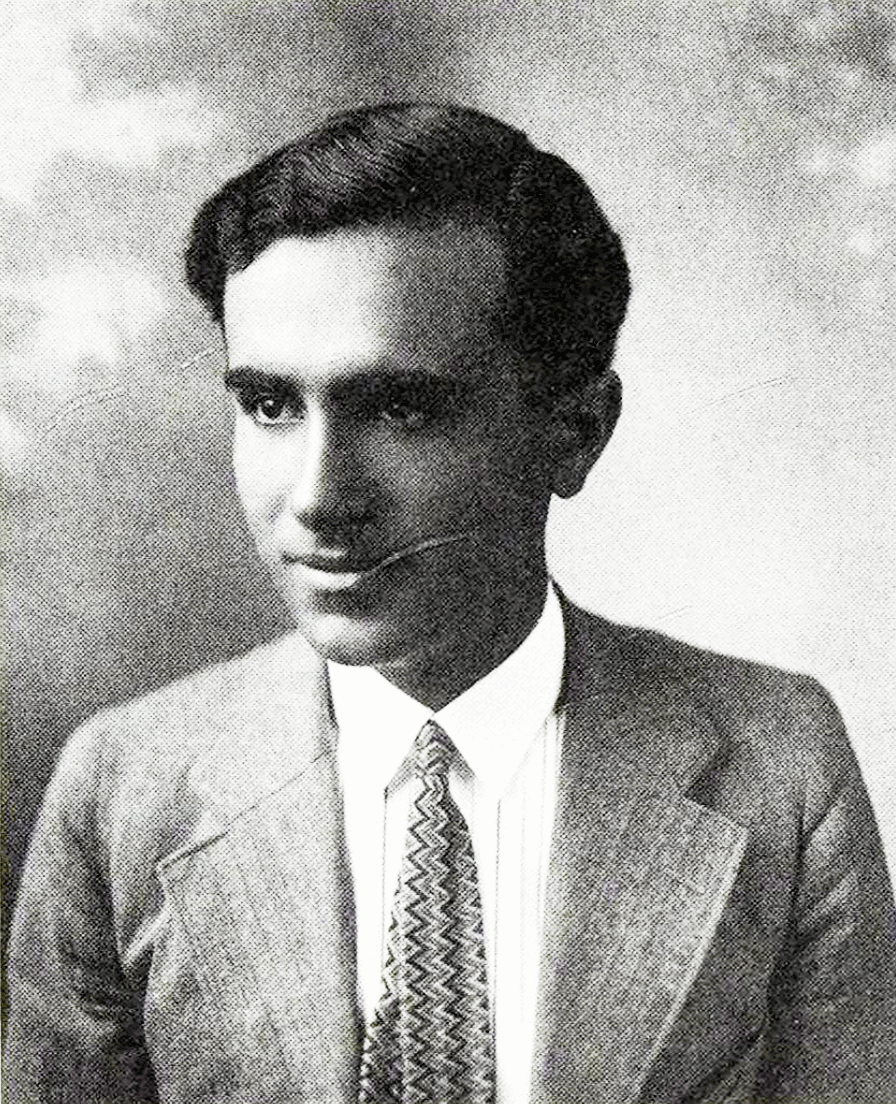
‘Alí Yazdí in his teenage years. Source: Blessings Beyond Measure: Recollections of 'Abdu'l-Bahá and Shoghi Effendi by Ali M Yazdí, page 59.
‘Alí Yazdí and Shoghi Effendi had first met in Ramleh in 1910, then again in 1912, and 1913. The following year, in 1914, ‘Alí Yazdí and his family had moved to Beirut, and the next year, ‘Alí Yazdí began his studies at Syrian Protestant College.
Their six-year friendship between Shoghi Effendi and ‘Alí Yazdí grew even stronger. There were several Bahá'ís at the College and they met together to study the Bahá'í Teachings. Shoghi Effendi and ‘Alí Yazdí were in the same dormitory, ‘Alí’s room right across the hallway from Shoghi Effendi’s.
‘Alí Yazdí described Shoghi Effendi as bouncing with energy and having a wonderful personality, always joyful and optimistic. He would burst into laughter, or a smile would break on his face, and he had beautiful, expressive eyes.
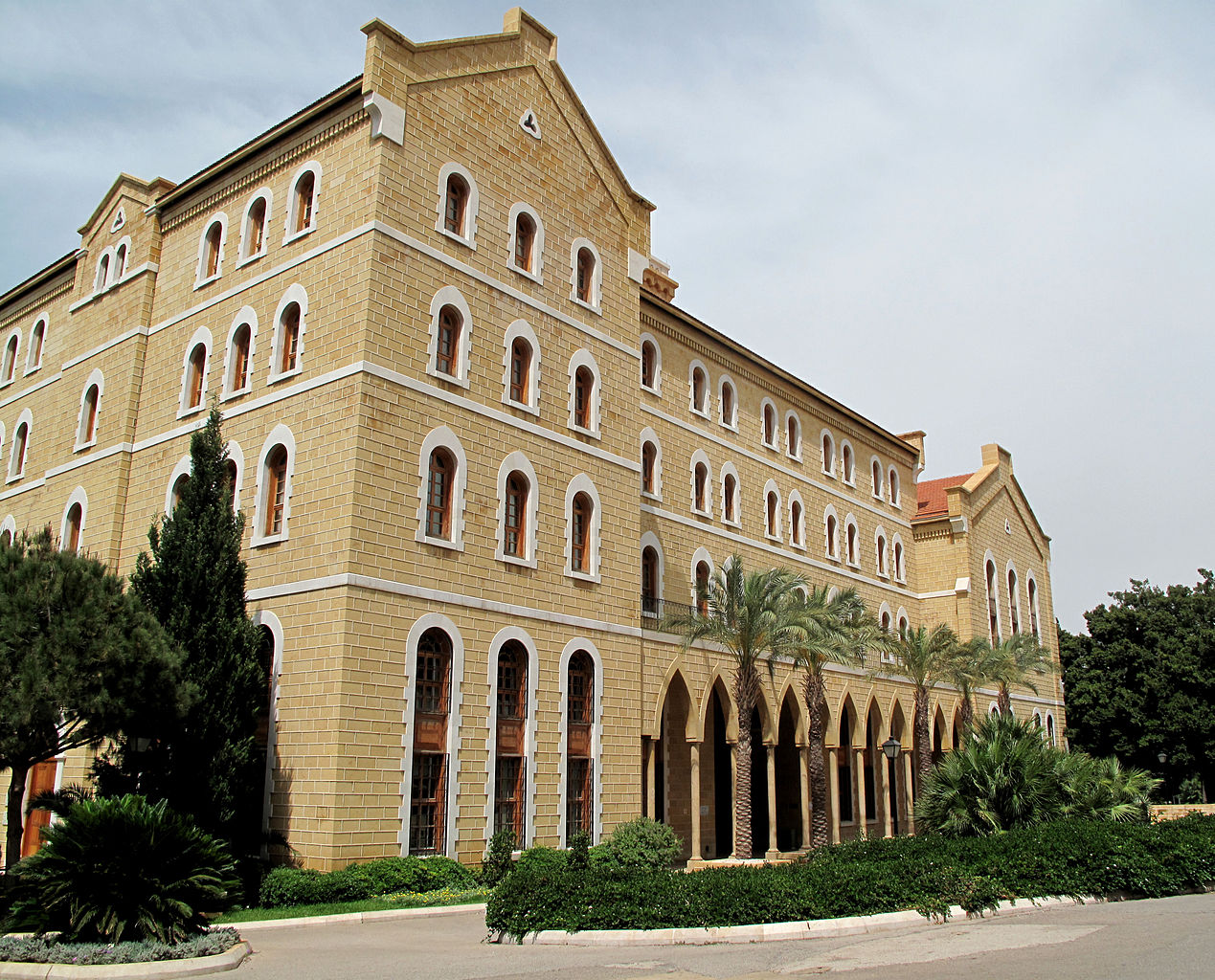
A modern view of the American University of Beirut—Syrian Protestant College at the time that Shoghi Effendi attended. Source: Wikimedia Commons.
Shoghi Effendi had his favorite things mailed to him in Beirut from Haifa: delicious, brown, home-baked bread, honey, dried fruits and nuts. The fruits from Haifa and Lebanon were absolutely delicious. Shoghi Effendi would invite ‘Alí Yazdí to his room, and the two of them would sit together, enjoying the delicious treats, talking, and having a wonderful time. Shoghi Effendi was profoundly generous from his early childhood.
Shoghi Effendi and ‘Alí talked about everything, they talked about the future, what they were going to study, and Shoghi Effendi was always speaking about the Faith spreading all over the world—his main passion when he became Guardian of the Faith—and how everyone should serve the Faith.
To ‘Alí, it seemed like the progress of the Faith and universal service were Shoghi Effendi’s main ambitions. Even as a teenager, Shoghi Effendi’s entire being was tethered to the Covenant. His only ambitions were not for his career, they were for his Faith. This perfectly describes his attitude as Guardian.
Although ‘Alí Yazdí was the son of a distinguished pioneer family from Egypt, and Shoghi Effendi was a descendent of the Báb’s family, 'Abdu'l-Bahá’s grandson and Bahá'u'lláh’s great-grandson, when they were together, they were just friends, happy in each other’s company, sharing their vision and their creativity.
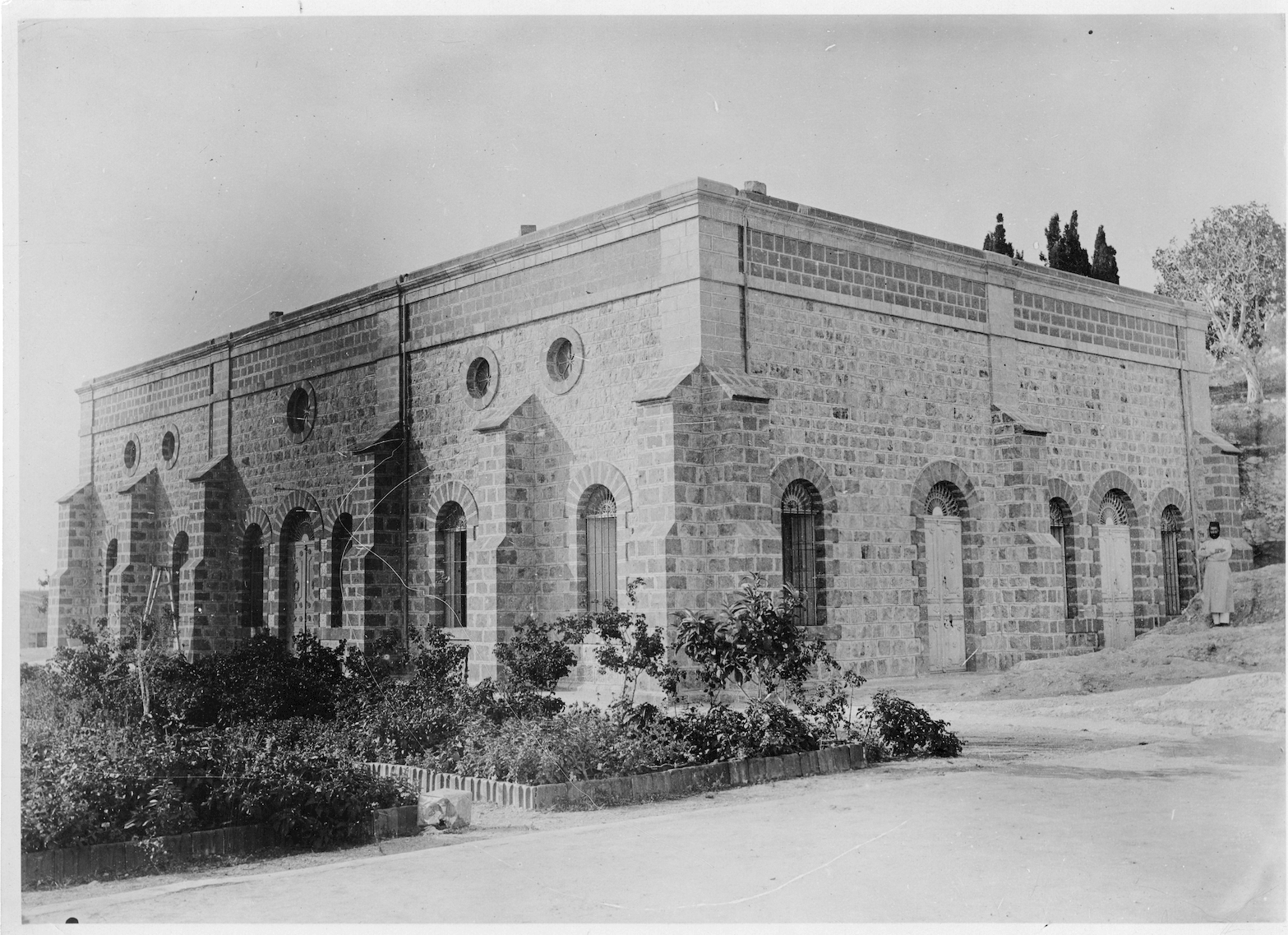
World War I had started, and the students—mostly Persians—were marooned in Beirut with nowhere to go, so during the War, 'Abdu'l-Bahá invited them to spend their summer vacations on Mount Carmel, where they slept in a room of the Shrine of the Báb.
They loved being together, and Shoghi Effendi and ‘Alí Yazdí were, of course, among them.
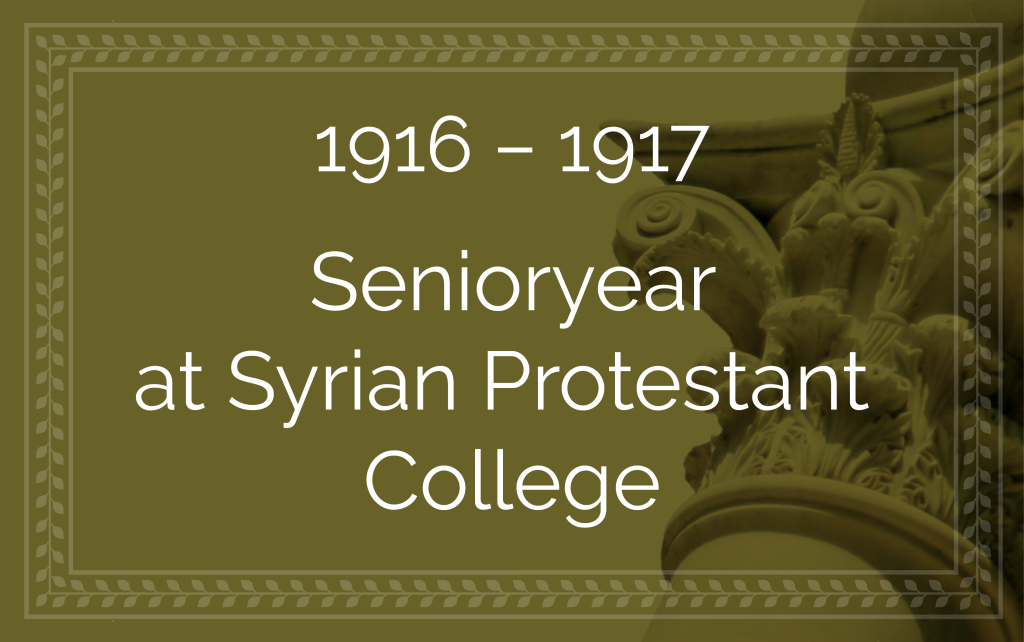
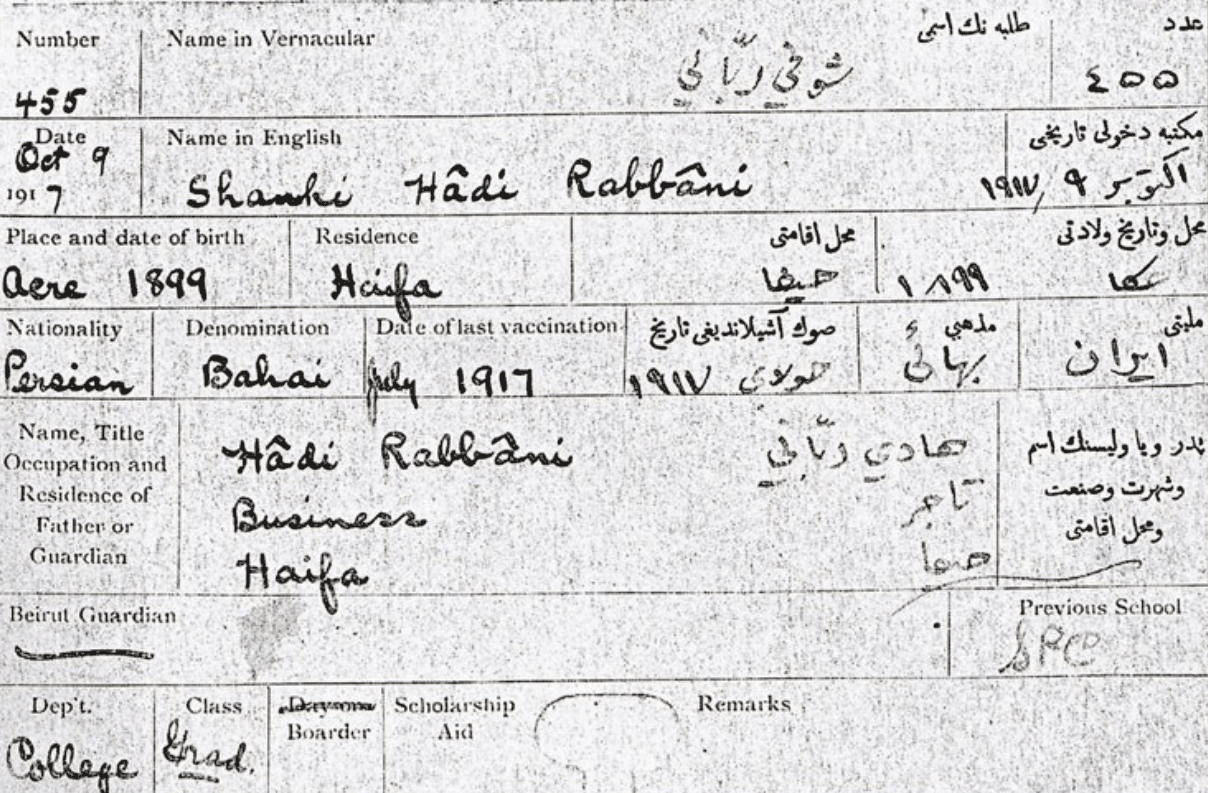
Shoghi Effendi’s senior year registration form dated 9 October 1917. Source: Bahá'í Sacred Relics.
October 1916 marked Shoghi Effendi’s senior year. The new courses he enrolled in were English Rhetoric, Arabic Rhetoric, Psychology, Engineering, Law, Astronomy, and Sociology.
Shoghi Effendi’s senior year at Syrian Protestant College took place in an atmosphere deeply marked by war and misery. The locust plague of 1915 had caused a region-wide famine and close to half a million people died of starvation in Lebanon and Syria.
Although the college was protected, it too saw its food supplies dwindle.
Shoghi Effendi graduated with a Bachelor of Arts degree on 13 June 1917, in a graduating class of only ten students.
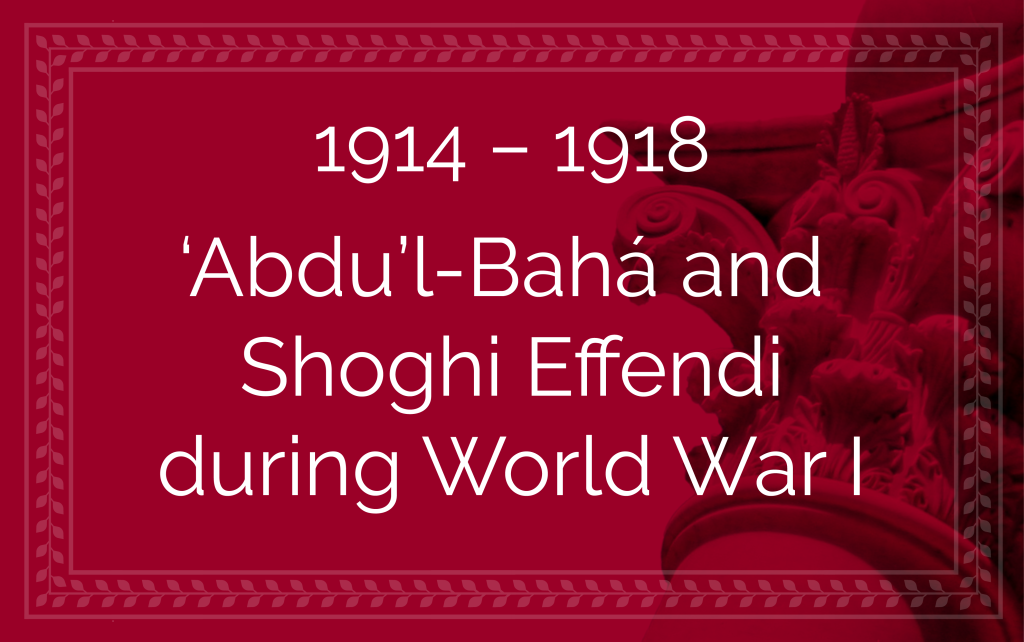
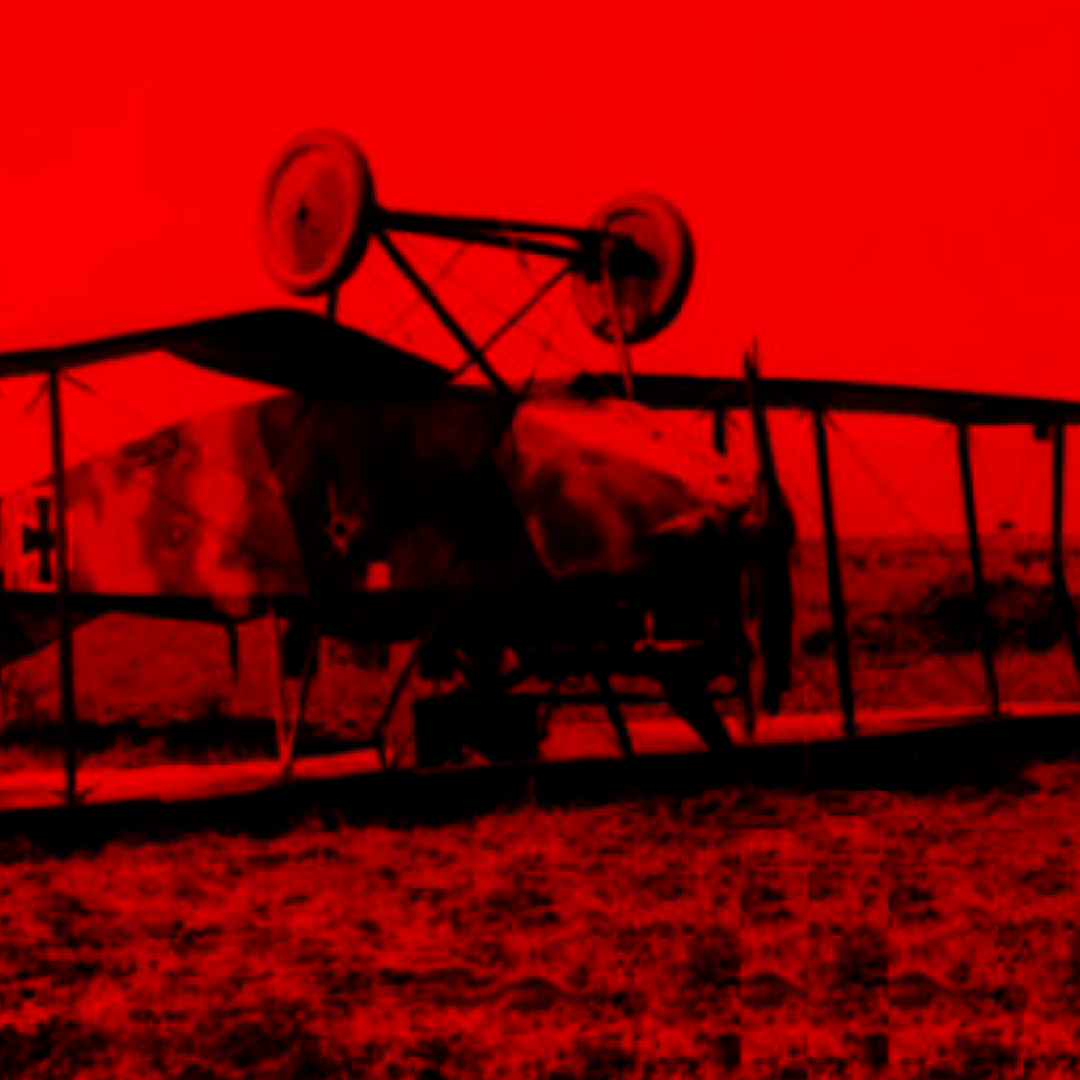
An overturned German AEG C.IV aircraft in the Beirut district, Lebanon, at a time when Shoghi Effendi was attending Syrian Protestant College. The German army arrived right at Shoghi Effendi’s doorstep. Source: Wikimedia Commons.
During the war, the Syrian Protestant College, like everyone else in Beirut, suffered severe shortages which led to famine, and ‘Alí Yazdí saw women dying of hunger in the streets of the city. He was heartbroken that no one paid attention to their plight, and did not venture out again, preferring to stay on campus rather than have his heart broken by a situation he could do nothing to alleviate.
Thanks to President Bliss, who was close to the ruthless Jamál Pashá, the Syrian Protestant College received rations, mainly because the College trained doctors and engineers, professions which were needed by the Turkish authorities during the War, and the students—including Shoghi Effendi—did not suffer from the rampant famine that killed hundreds of thousands of people in Lebanon.
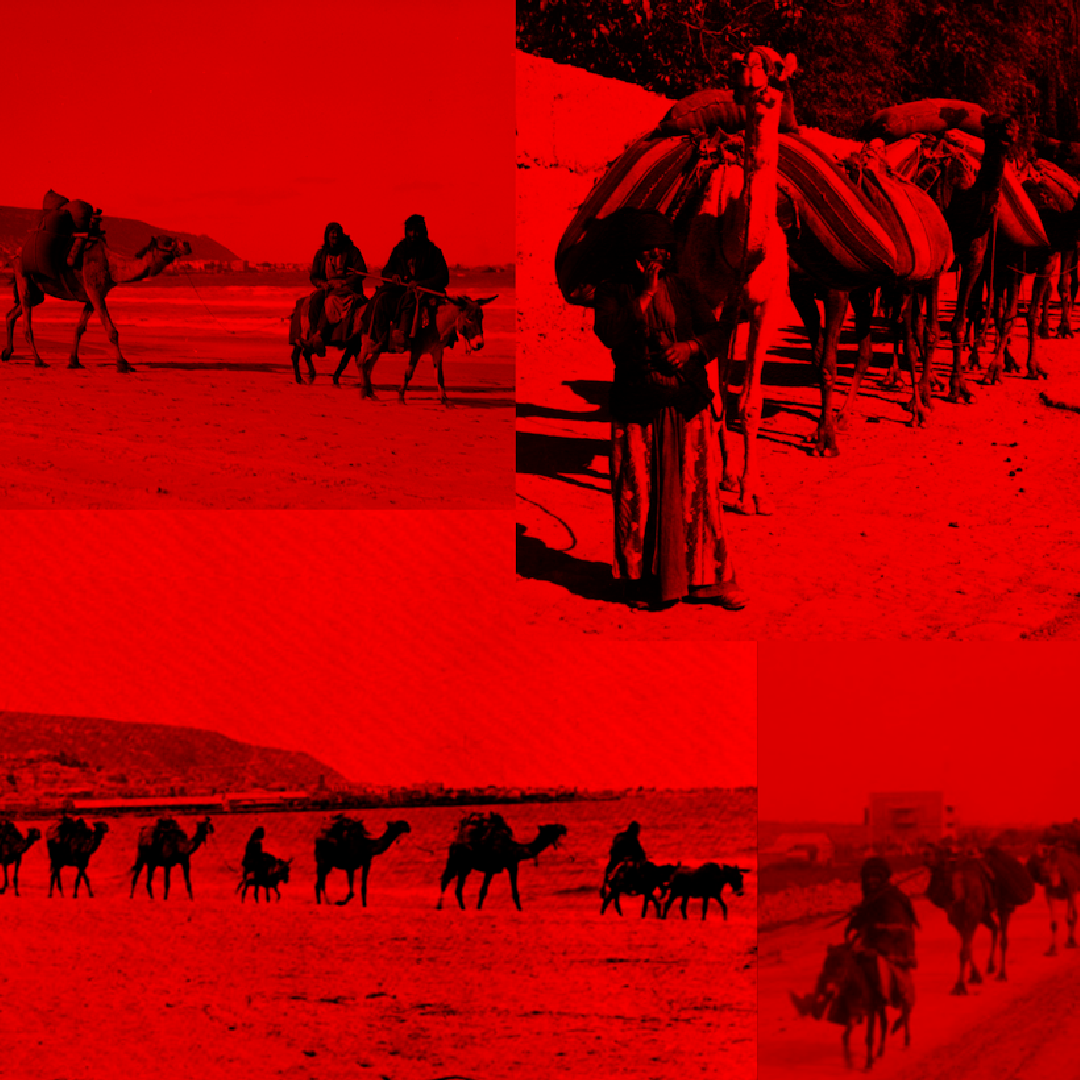
A few images of camel caravans in Palestine in the beginning of the 20th century. The top and bottom photographs on the extreme left side of the photo-montage both show caravans travelling to 'Akká from Haifa (which is seen in the background).
'Abdu'l-Bahá had foreseen the coming of World War I and had instructed many years before, the farmers of ‘Adasiyyíh to begin growing and storing extra grain, which He later used to relieve famine in the Haifa and 'Akká areas.
No amount of foresight or foreknowledge could shield 'Abdu'l-Bahá from the reality of the destruction caused by a conflict He knew would come. Shoghi Effendi later described his Grandfather's heartbreak during World War I in God Passes By, no doubt based on his observations of 'Abdu'l-Bahá during the War when he was visiting Haifa from Syrian Protestant College:
Agony filled His soul at the spectacle of human slaughter precipitated through humanity's failure to respond to the summons He had issued, or heed the warnings He had given.
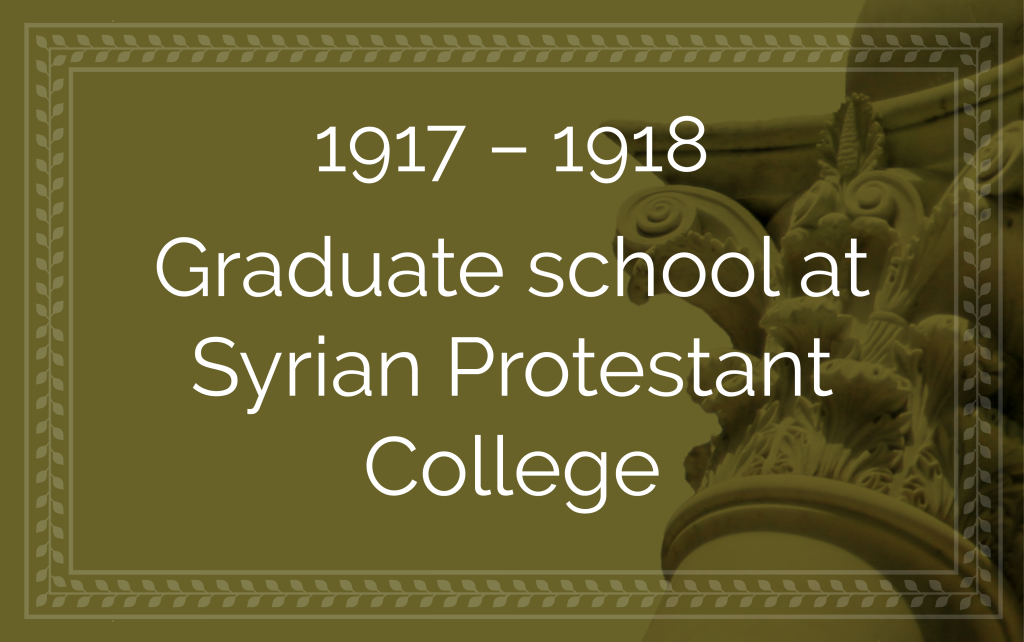
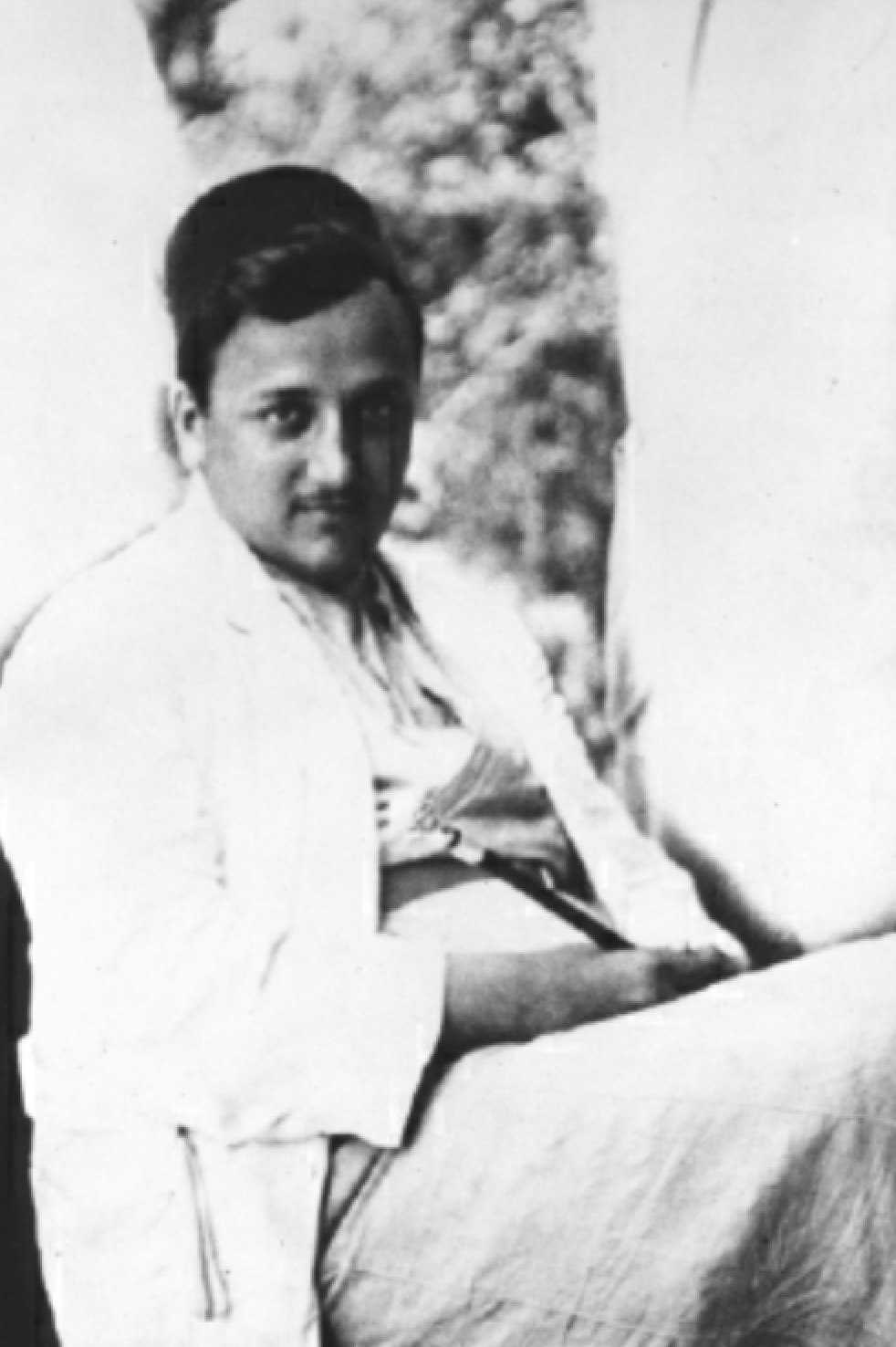
Shoghi Effendi at Syrian Protestant College. Source: The Priceless Pearl, between pages 56 and 57.
It is clear by now that all the essential characteristics of Shoghi Effendi the Guardian were already present in Shoghi Effendi the young student.
Shoghi Effendi kept notebooks his entire life, where he would later track all sorts of things from movements of pioneers to the date he received the Times of London, but in his notebooks as a student of the Syrian Protestant college, there are charming details of things he kept track of.
One of these things was the dates ice was delivered to the house he was living in Beirut, but Shoghi Effendi also kept methodic, detailed, systematic lists of the entire Bahá'í calendar, the basic principles of the Faith, French-language notes on the period of the Hebrew Prophets, solar and lunar calculations, measurements, weights, copies of Tablets, and the Abjad system of numerology.
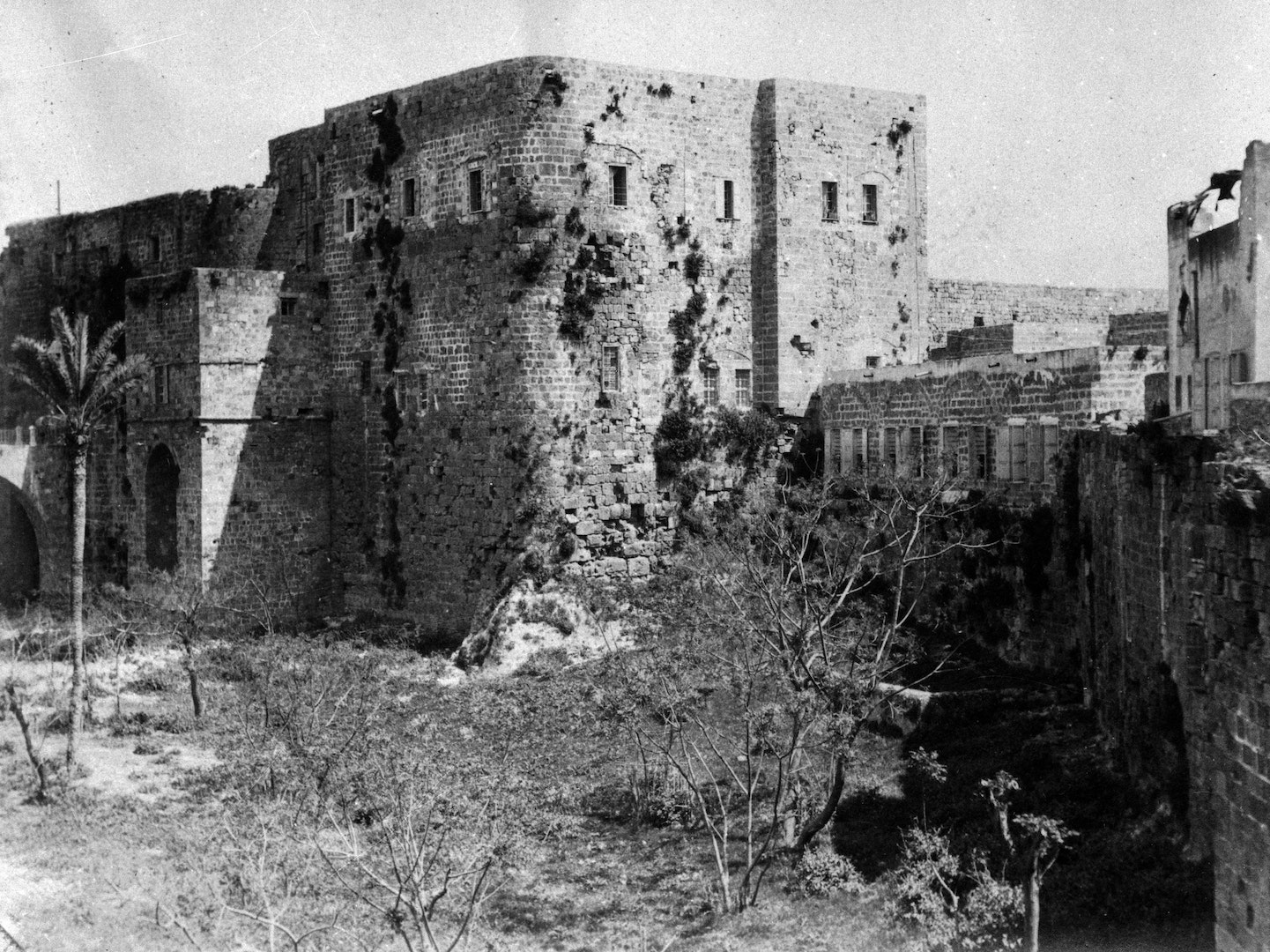
The Most Great Prison in 'Akká, where Bahá'u'lláh was imprisoned with 'Abdu'l-Bahá and the rest of the Holy Family and Bahá'í exiles between 1868 and 1870. This is where ‘Alí Yazdí spent the first night of his 1917 summer vacation. Source: Bahá'í Media Bank, © Bahá'í International Community 2023.
In the summer of 1917, when ‘Alí Yazdí was 18, he traveled to the Holy Land to visit his uncle Mírzá Ḥusayn Yazdí who was living in a house on Mount Carmel. ‘Alí traveled overland by horseback along the Mediterranean coast from Beirut over steep stony mountains, looking down on the waves of the Mediterranean beating against the rocks, at times passing through fields along the seashore. ‘Alí finally arrived in 'Akká, and a fell asleep on the floor, totally exhausted.
The next day, ‘Alí went to Haifa and entered the presence of ‘Abdu’l-Bahá.
During his time in Haifa, ‘Alí Yazdí had the bounty of seeing 'Abdu'l-Bahá every evening, around dusk. The Bahá'ís gathered in front of the Master’s House, sitting on the wall, waiting for 'Abdu'l-Bahá until He came out of the house, with a cheerful smile, warmly welcoming them, and taking his seat at the top of the stairs.
Sometimes, 'Abdu'l-Bahá was just with the Bahá'ís, not speaking, but most evenings, He spoke in a commanding voice, looking straight ahead at posterity, it seemed to ‘Alí Yazdí.
'Abdu'l-Bahá would ride to the Shrine of the Báb in his old horse-drawn carriage while the Bahá'ís walked up Mount Carmel. 'Abdu'l-Bahá usually chanted the Tablet of Visitation, but sometimes he asked 20-year-old Shoghi Effendi to chant it. As the believers filed out of the Shrine, 'Abdu'l-Bahá dropped a little rosewater in their hands.
‘Alí Yazdí also visited Bahjí and the Shrine of Bahá'u'lláh, and once followed 'Abdu'l-Bahá as He walked among the pines on Mount Carmel. ‘Alí liked spending time in 'Abdu'l-Bahá’s garden and speaking to Ismá’íl Áqá, 'Abdu'l-Bahá’s old gardener. At dinner—although He Himself ate little—'Abdu'l-Bahá would always insist everyone eat enough food, and told young ‘Alí, who was hungry but too shy to eat:
Why aren’t you eating? Why aren’t you eating, Shaykh ‘Alí?
And 'Abdu'l-Bahá would put a large heap of rice on ‘Alí’s plate. 'Abdu'l-Bahá always called him Shaykh ‘Alí, and later, Shoghi Effendi would often tease him, also calling him Shaykh.
During ‘Alí’s visit, 'Abdu'l-Bahá traveled by horse-drawn carriage to Tiberias, the Sea of Galilee and ‘Adasiyyíh to oversee the wheat being sowed, precious grain that would save many lives in the year to come, and would even feed the British Army.
Shoghi Effendi and ‘Alí Yazdí spent a lot of time together that summer, along with several of their other friends, a happy group.
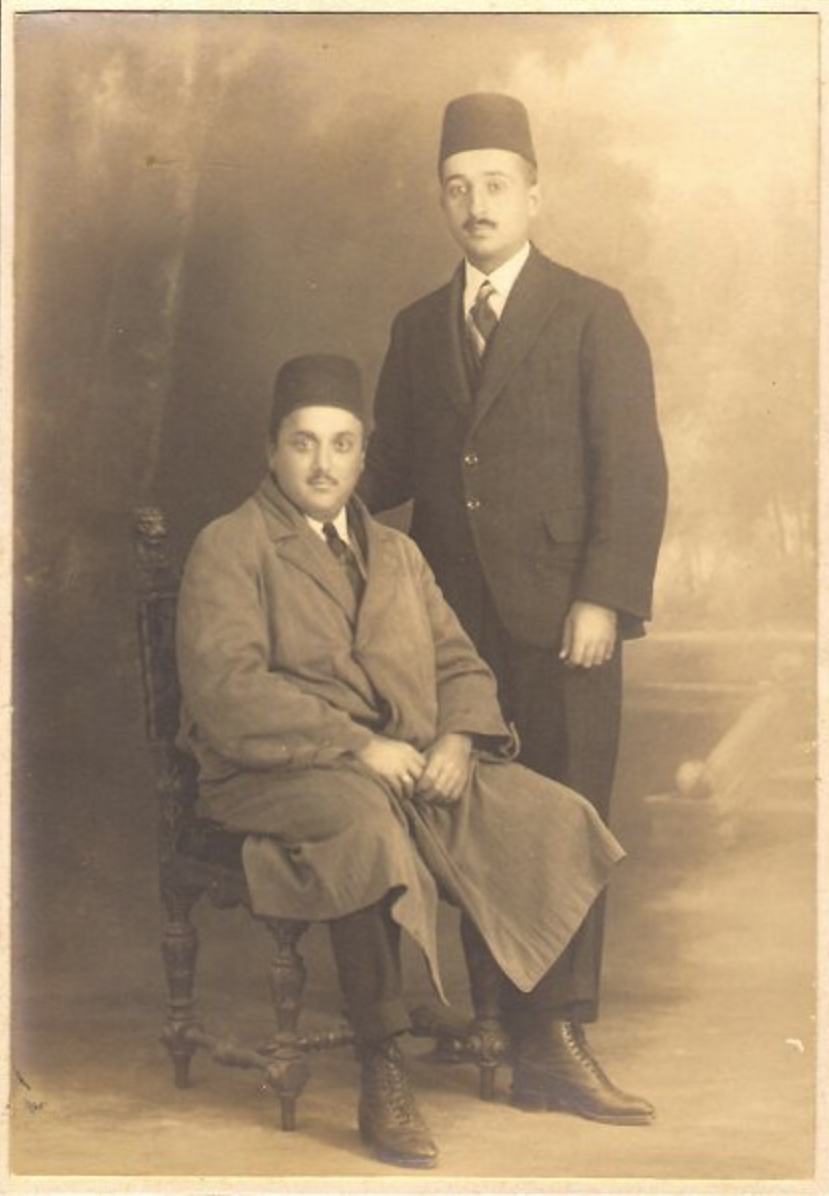
Shoghi Effendi, seated, and his cousin Rúhí Afnán. Source: Bahá'í History.
When Shoghi Effendi returned to Syrian Protestant College on 9 October 1917, he was now a graduate student.
Three months into his first term, Shoghi Effendi wrote to His beloved Grandfather, telling Him he had "arrived happily and safely in the university" after weathering cold and rain on the way to Beirut.
Shoghi Effendi continues:
I have resumed my studies, directing and concentrating all my efforts on them and doing my utmost to acquire that which will benefit and prepare me to serve the Cause in the days to come.
In this letter, Shoghi Effendi pours out his love for 'Abdu'l-Bahá saying "my love and longing for you" and ending: "I have sent you by post a piece of cheese, hoping it will be acceptable to Thee,” before signing it "Thy lowly and humble servant Shoghi".
In a time of war, and writing from a country where half a million people had just died of starvation, the gift of a piece of cheese on Shoghi Effendi’s part is a significant and meaningful gesture.
In 1923, Shoghi Effendi would write a letter to Professor Dodge at what was now the American University in Beirut, and in this letter, he would refer to the former Syrian Protestant College as" this great educational institution in the Near East, to which I feel so deeply indebted..."
Once Shoghi Effendi completed his first year of graduate school in Beirut, he returned to Haifa to serve His beloved Grandfather full-time, for the first time in his life.
They would be the happiest and most unforgettable months of his life.
SOURCES FOR PART II
29 August 1910: Seeing ‘Abdu’l-Bahá leave Haifa
The Priceless Pearl, Rúḥíyyih Rabbání, Bahá’í Publishing Trust, London, 1969, page 18.
Eight Years Near ‘Abdu’l-Bahá: The Diary of Dr. Habíb Mú’ayyad, translated and annotated by Ahang Rabbani, Volume 3: Witnesses to Bábí and Bahá’í History, An eBook publication (March 2007 Edition), page 129.
‘Alí Yazdí’s Blessings Beyond Measure
The epigraph used for the purposes of this chronology is not the one as it appears in Blessings Beyond Measure. Shoghi Effendi retranslated that quote in The World Order of Bahá’u’lláh, and that was the translation we chose to use.
The Dispensation of Bahá’u’lláh, Shoghi Effendi, Chapter: Bahá’u’lláh.
Email communication with Adib Masumian dated 11 December 2023 in which he provided the reference for the original quote:
Ages, cycles, nay, thousands of generations must pass away before the Sun of Truth may mount its zenith and shine again in its full splendour. Now that…ye have been called to life and gathered together in this Age…how thankful ye must be!
As being originally published in Star of the West Volume 14, Issue 1, and subsequently provided the reference for the retranslation by Shoghi Effendi in Bahá’í Administration as being listed in the Partial Inventory of the of the works of the Central Figures of the Bahá’í Faith, an initiative by Dr. Steven Phelps, under inventory number AB04797.
The family background of ‘Alí Yazdí
Blessings Beyond Measure: Recollections of ‘Abdu’l-Bahá and Shoghi Effendi. Ali M Yazdí, Bahá’í Publishing Trust, 1988, pages 6-13.
Email communication with Mona Grieser Yazdí on 11 December 2023 regarding the birthplace of ‘Alí Yazdí being in Alexandria and not in Yazd as is indicated on his Bahaipedia page.
September – October 1910: Shoghi Effendi and ‘Alí Yazdí in Ramleh
Blessings Beyond Measure: Recollections of ‘Abdu’l-Bahá and Shoghi Effendi. Ali M Yazdí, Bahá’í Publishing Trust, 1988, page 50.
Bahaipedia: ‘Alí Yazdí.
Bahaipedia: Ḥájí Muḥammad Yazdí.
Violetta Zein, The Extraordinary Life of ‘Abdu’l-Bahá Part V: Journeys to the West: Egypt, Europe, and Egypt (1919-1912).: ‘Abdu’l-Bahá in Ramleh in the eyes of an eleven-year-old-boy.
September – October 1910: ‘Abdu’l-Bahá in Egypt
Violetta Zein, The Extraordinary Life of ‘Abdu’l-Bahá: The illustrated chronology of the life of ‘Abdu’l-Bahá Part V: 1 October 1910 – ‘Abdu’l-Bahá almost travels to Europe.
The Priceless Pearl, Rúḥíyyih Rabbání, Bahá’í Publishing Trust, London, 1969, page 18.
Star of the West Volume 2, Number 10 pages 5-6.
Champions of Oneness: Louis Gregory and His Shining Circle, Janet Ruhe-Schoen, Bahá’í Publishing Trust, Wilmette, Il, 2015, pages 15-21.
April 1911: In Ramleh with ‘Abdu’l-Bahá
The Priceless Pearl, Rúḥíyyih Rabbání, Bahá’í Publishing Trust, London, 1969, page 18.
Star of the West Volume 2, Number 10 pages 5-6.
Champions of Oneness: Louis Gregory and His Shining Circle, Janet Ruhe-Schoen, Bahá’í Publishing Trust, Wilmette, Il, 2015, pages 15-21.
10 – 16 April 1911: Shoghi Effendi during Louis Gregory’s pilgrimage
Champions of Oneness: Louis Gregory and His Shining Circle, Janet Ruhe-Schoen, Bahá’í Publishing Trust, Wilmette, Il, 2015, pages 84-85
24 March 1912 – Shoghi Effendi shows ‘Alí Yazdí his cabin on the RMS Cedric
The Priceless Pearl, Rúḥíyyih Rabbání, Bahá’í Publishing Trust, London, 1969, page 18.
Blessings Beyond Measure: Recollections of ‘Abdu’l-Bahá and Shoghi Effendi. Ali M Yazdí, Bahá’í Publishing Trust, 1988, pages 52-53.
25 March 1912: Sailing to America
‘Abdu’l-Bahá in Their Midst, Earl Redman, George Ronald, 2011, Kindle Edition.
29 March 1912: Tragedy in Naples: Shoghi Effendi is turned back
The Priceless Pearl, Rúḥíyyih Rabbání, Bahá’í Publishing Trust, London, 1969, pages 20-21.
Balyúzí, H.M. ‘Abdu’l-Bahá: The Centre of the Covenant of Bahá’u’lláh pages 171-172,
Redman, Earl. ‘Abdu’l-Baha in Their Midst, Kindle Edition
Maḥmúd-i-Zarqání, Mírzá. Maḥmúd’s Diary Chronicling ʻAbdu’l-Bahá’s Journey to America.
Prelude to the Guardianship. Riaz Khadem, George Ronald, Oxford, 2014, Kindle Edition, Location 284.
Mayo Clinic: Trachoma Symptoms and Causes.
Science Direct: The Trachoma “Menace” in the United States, 1897-1960.
Native Voices: 1912: Trachoma poses blindness risk in the West.
30 March 1912: Shoghi Effendi is forced to disembark
The Priceless Pearl, Rúḥíyyih Rabbání, Bahá’í Publishing Trust, London, 1969, pages 19-20.
Balyúzí, H.M. ‘Abdu’l-Bahá: The Centre of the Covenant of Bahá’u’lláh pages 171-172,
Redman, Earl. ‘Abdu’l-Baha in Their Midst, Kindle Edition
Maḥmúd-i-Zarqání, Mírzá. Maḥmúd’s Diary Chronicling ʻAbdu’l-Bahá’s Journey to America
Early April 1912: Shoghi Effendi is back in Ramleh
Blessings Beyond Measure: Recollections of ‘Abdu’l-Bahá and Shoghi Effendi. Ali M Yazdí, Bahá’í Publishing Trust, 1988, pages 53-54.
1912/1913: Letters from ‘Abdu’l-Bahá
The Priceless Pearl, Rúḥíyyih Rabbání, Bahá’í Publishing Trust, London, 1969, page 21.
Leaves of the Twin Divine Trees. Baharieh Rouhani Ma’ani, George Ronald, Oxford, 2013, Kindle Edition, Chapter 12: Munírih Khánum (Fátimih Khánum): The Wife of ‘Abdu’l-Bahá.
1912: Shoghi Effendi in Beirut
Prelude to the Guardianship. Riaz Khadem, George Ronald, Oxford, 2014, Kindle Edition, Location 284-356.
The Priceless Pearl, Rúḥíyyih Rabbání, Bahá’í Publishing Trust, London, 1969, page 25.
Prelude to the Guardianship. Riaz Khadem, George Ronald, Oxford, 2014, Kindle Edition, Location 356
August/ September 1913: Shoghi Effendi’s activities in Egypt
H.M. Balyúzí. ‘Abdu’l-Bahá – The Centre of the Covenant of Bahá’u’lláh, page 397-402
Maani, Baharieh Rouhani. Leaves of the Twin Divine Trees page 175-176
Sohrab, Mírzá Ahmad. Letters from Egypt, 17 June 1913 – 5 December 1913
Rabbání, Rúḥíyyih. The Priceless Pearl, Chapter 1.
Blessings Beyond Measure: Recollections of ‘Abdu’l-Bahá and Shoghi Effendi. Ali M Yazdí, Bahá’í Publishing Trust, 1988, page 54.
8 March 1914: A letter from Shoghi Effendi in Beirut
The Priceless Pearl, Rúḥíyyih Rabbání, Bahá’í Publishing Trust, London, 1969, pages 23-24.
28 July 1914: A letter from Shoghi Effendi to Burma
The Priceless Pearl, Rúḥíyyih Rabbání, Bahá’í Publishing Trust, London, 1969, pages 24-25.
1913 – 1917: Shoghi Effendi’s visits to Haifa during his college years
The Priceless Pearl, Rúḥíyyih Rabbání, Bahá’í Publishing Trust, London, 1969, pages 13-14.
Prelude to the Guardianship. Riaz Khadem, George Ronald, Oxford, 2014, Kindle Edition, page 12.
1913 – 1917: Shoghi Effendi’s visits to Haifa during his college years
Tablets of the. Divine Plan Blog by Brent Poirier” ‘Geography Book used for the Tablets of the Divine Plan.
World Geography: One-volume edition by Ralph Stockman Tarr, and Frank Morton McMurry (1912).
Prelude to the Guardianship. Riaz Khadem, George Ronald, Oxford, 2014, Kindle Edition, Location 381.
First article: The Function of Sports in Life
The Function of Sports in Life, Shoghi Effendi (Bahá’í Library Online).
‘Abdu’l-Bahá’s Tablet to the President of the Syrian Protestant College
Eight Years Near ‘Abdu’l-Bahá: The Diary of Dr. Habíb Mú’ayyad, translated and annotated by Ahang Rabbani, Volume 3: Witnesses to Bábí and Bahá’í History, An eBook publication (March 2007 Edition), page 441.
International Encyclopedia of the First World War: Bliss, Howard S.
30 August 1915: Shoghi Effendi accompanies Lua Getsinger, leaving the Holy Land for the last time
Lua Getsinger: Herald of the Covenant, Velda Metelmann, George Ronald, 1977, page pages 316-350.
Violetta Zein, The Extraordinary Life of ‘Abdu’l-Bahá Part VIII: Return to the Holy Land.
Prelude to the Guardianship. Riaz Khadem, George Ronald, Oxford, 2014, Kindle Edition, Location 509.
The Rules of Parliamentary Discipline, Shoghi Effendi (Bahá’í Library Online).
1915/1916: Shoghi Effendi and ‘Alí Yazdí in Beirut
Blessings Beyond Measure: Recollections of ‘Abdu’l-Bahá and Shoghi Effendi. ‘Alí M Yazdí. Bahá’í Publishing Trust, 1988, pages 24 and 55.
Packages of goodies from Haifa
Blessings Beyond Measure: Recollections of ‘Abdu’l-Bahá and Shoghi Effendi. ‘Alí M Yazdí. Bahá’í Publishing Trust, 1988, pages 57-58.
Syrian Protestant College Bahá’í students’ summers on Mount Carmel
Blessings Beyond Measure: Recollections of ‘Abdu’l-Bahá and Shoghi Effendi. ‘Alí M Yazdí. Bahá’í Publishing Trust, 1988, pages 24 and 55.
Prelude to the Guardianship. Riaz Khadem, George Ronald, Oxford, 2014, pages 17-18.
Shoghi Effendi in Beirut during World War I
Blessings Beyond Measure: Recollections of ‘Abdu’l-Bahá and Shoghi Effendi. ‘Alí M Yazdí. Bahá’í Publishing Trust, 1988, page 56.
‘Abdu’l-Bahá during World War I
A love which does not wait : the stories of Lua Getsinger, May Maxwell, Martha Root, Keith Ransom-Kehler, Hyde Dunn, Susan Moody, Dorothy Baker, Ella Bailey, and Marion Jack, Janet Ruhe-Schoen, Palabra Publications (1998), pages 54-55.
God Passes By, Shoghi Effendi.
1917: Excerpts from Shoghi Effendi’s notebooks
The Priceless Pearl, Rúḥíyyih Rabbání, Bahá’í Publishing Trust, London, 1969, page 24.
Summer 1917: In Haifa – Vignettes from ‘Alí Yazdís’ pilgrimage
Blessings Beyond Measure: Recollections of ‘Abdu’l-Bahá and Shoghi Effendi. ‘Alí M Yazdí. Bahá’í Publishing Trust, 1988, pages 24-33 and 58-61.
The Priceless Pearl, Rúḥíyyih Rabbání, Bahá’í Publishing Trust, London, 1969, pages 25 and 36.
![]()
 September – October 1910: Shoghi Effendi and ‘Alí Yazdí in Ramleh
September – October 1910: Shoghi Effendi and ‘Alí Yazdí in Ramleh






